- Share full article
Advertisement
Supported by

Saudi Arabia Wants Tourists. It Didn’t Expect Christians.
In a fluid new age for the conservative Islamic kingdom, evangelicals have become some of its most enthusiastic visitors.

By Vivian Nereim
Photographs by Iman Al-Dabbagh
Vivian Nereim has reported from inside Saudi Arabia since 2015. For this article, she and the photographer Iman Al-Dabbagh spent five days traveling through Saudi Arabia with a Christian tour group.
The caravan of five Toyota Land Cruisers raced across Saudi Arabia’s rocky desert, weaving onto a highway so new it was not on the map. At the cleft of sea that splits the kingdom from Egypt, they stopped on a barren beach. Fifteen tourists spilled out and gathered around Joel Richardson, a Kansas preacher.
As the sun dipped below the mountains of the Sinai Peninsula — hazy across the water in Egypt — Mr. Richardson asked the group to imagine standing on the other side at the moment of the biblical Exodus, fleeing from Pharaoh’s army with Moses, when the sea ripped in half.
He opened a Bible, donned his glasses and began to recite. “Who among the gods is like you, oh Lord?” he said. “Who is like you, majestic in holiness, awesome in glory, working wonders?”
Two Florida retirees, a Colorado pharmacist, an Idaho bookkeeper and an Israeli archaeologist listened intently.

Jebel al Lawz
Site of Neom
These were not the visitors Saudi officials expected when they opened the country’s borders to leisure tourists in 2019, seeking to diversify the oil-dependent economy and present a new face to the world. First would come the adventurers, they thought — seasoned travelers searching for an unusual destination — and then the luxury market, with yacht owners flocking to resorts that the government is building on the Red Sea coast. No one in the conservative Islamic kingdom had planned for the Christians.
Yet Christians of many stripes — including Baptists, Mennonites and others who call themselves “children of God” — were among the first people to use the new Saudi tourist visas. Since then, they have grown steadily in numbers, drawn by word of mouth and viral YouTube videos arguing that Saudi Arabia, not Egypt, is the site of Mount Sinai, the peak where Jewish and Christian Scriptures describe God revealing the Ten Commandments.
Mainstream biblical scholars vigorously dispute this. But that does little to dampen the pilgrims’ enthusiasm as they embark on what is, for many of them, the trip of a lifetime, hunting for evidence that they think could prove the truth of the Exodus.
“It makes something tangible that you have believed in your whole life,” said Kris Gibson, 53, the Idaho bookkeeper on Mr. Richardson’s trip, who had never traveled beyond the United States and Mexico before she boarded a plane in February to Saudi Arabia.
For decades, nearly all of the tourists who entered Saudi Arabia were pilgrims going to Mecca, the birthplace of Islam. Openly practicing other religions was effectively forbidden. Synthetic Christmas trees were smuggled in and sold as contraband. People accused of “witchcraft” were executed .
The country’s religious dogmatism began to ease early in the 2000s, when tens of thousands of Saudis studied in the United States. Then, in 2015, a new king elevated his 29-year-old son, Prince Mohammed bin Salman, into the line of succession.
Prince Mohammed declared that he would turn the kingdom into a global business hub. He unleashed a cascade of social changes, stripping religious police of their powers, loosening dress codes and lifting a ban on women’s driving.
He also oversaw an increase in political repression , silencing almost every Saudi voice that might challenge him. In 2018, Saudi agents in Istanbul murdered and dismembered the Washington Post columnist Jamal Khashoggi, a critical exile. An American intelligence assessment determined that the prince probably ordered the killing, a charge he denied.
Since then, Prince Mohammed has defied attempts to isolate him, deploying Saudi Arabia’s oil wealth in new ways to cement the country’s influence, including this month’s surprise deal between a Saudi-backed golf league and the PGA Tour.
As Saudi Arabia traverses this fluid new age, once-unthinkable events have become commonplace , giving daily life the texture of a surreal dream.
Few Saudis would dare to speak of full religious freedom; atheists — and even Muslims who question the tenets of Islam — can face imprisonment . But religious taboos are shifting rapidly. Buddhist monks attended an interfaith gathering in the kingdom last year, and Jewish visitors recently planted date palm trees in Medina, Islam’s second holiest city. An American-Israeli man turned up in the capital, Riyadh, with a website proclaiming himself “chief rabbi of Saudi Arabia.”
The kingdom is changing so fast that people are often unsure what has official approval and what is an accident. Government entities did not respond to requests for comment about Christian tours. Some Saudis privately expressed bemusement, though, and expanding tourism is a priority as the country diversifies its economy.
There is also a more subtle incentive. Saudis have long been portrayed in North America and Europe through tropes that brand them as backward and barbaric. They view tourism as a way to redefine the narrative and showcase their culture: its hospitality, its generosity, its spiced coffee and deep-fried sweets.
“When you think of Saudi Arabia from the States, you certainly don’t think of this,” said Ms. Gibson, strolling through a canyon filled with palm trees.
‘How Beautiful’
When Ms. Gibson told a friend she was going to Saudi Arabia, he called her crazy. She worried about offending Saudis — wearing the wrong thing, eating with the wrong hand — but once she arrived, no one seemed to care.
“I’m just absolutely shocked at how beautiful it is,” she said. “Because, you know, in my head I’m thinking, nothing but sand.”
Israel and Egypt have local Christian populations and long ago welcomed Christian travelers, drawing millions of people a year, many of them American evangelicals. Saudi Arabia is a nascent market. But several tour companies now offer packages geared toward Christians.
Like most similar journeys, Mr. Richardson’s tour — costing $5,199 per person — covered an area that Prince Mohammed chose for a science fiction-inspired mega-project , Neom, where he plans to build a linear metropolis composed entirely of two parallel skyscrapers.
Neom’s planners promise to preserve archaeological sites. Still, some Christian tourists worry.
“I wanted to see it in its pristine nature,” said Michael Marks, 52, the pharmacist from Colorado, who accelerated his plan to visit because of the project.
Like many Christian tourists, Mr. Marks became interested in the kingdom through the story of Ron Wyatt, an American nurse who popularized the idea that Saudi Arabia was the location of Mount Sinai.
Biblical archaeologists typically place Mount Sinai in Egypt, although there are other theories. A minority points to writings by the Roman historian Flavius Josephus suggesting that Jebel al-Lawz, a mountain in northwestern Saudi Arabia, is the site. There is also local lore that Moses spent time in the area. “No historical or archaeological evidence support these stories,” Saudi archaeologists wrote in a 2002 paper.
In the 1980s, Mr. Wyatt smuggled himself into Saudi Arabia and was arrested for entering illegally. He made a series of dubious claims, including that he had discovered the remains of ancient Egyptian chariots under the Red Sea.
Nevertheless, his ideas — initially on the fringe of evangelical beliefs — spread. Several years ago, Ryan Mauro, a self-described security analyst and Fox News commentator, narrated a popular YouTube video, “Finding the Mountain of Moses,” in which he said: “The Saudis have been hiding the evidence of the Exodus.”
Such conspiratorial assertions are often coupled with Islamophobia, but Saudi officials appear to see little conflict in courting conservative American Christians . For one, they are relatively inured to prejudice against Muslims; declarations by Donald J. Trump, like “I think Islam hates us,” did not dent his warm ties with Prince Mohammed when he was president.
But also, links to these groups offer a new source of soft power, coveted as an alternative way of connecting to Americans even when formal U.S.-Saudi ties are rocky. In 2018, weeks after Mr. Khashoggi’s murder, the prince hosted a delegation of American evangelical leaders in Riyadh.
Evidence in the Desert
Mr. Richardson led his first tour to the kingdom in 2019, when the tourist visas were first available. A bearded man with a dry sense of humor, he was raised nominally Catholic in Massachusetts. As a teenager, he was a “very successful hedonist,” he joked.
But in the early 1990s, he came across a tent revival meeting in Tennessee and became an evangelical. “The Holy Spirit just spoke to me and said, ‘Your entire life is just a complete lie,’” he said.
He became fascinated by end-times prophesies, and in two books published more than a decade ago, argued that the Antichrist will be Muslim, describing Islam as a “totalitarian ideology” with “satanic origins.”
Asked how he reconciles his writing with what he calls a love of the Middle East, he said his perspective has changed, describing himself as a “conservative libertarian” who now has more of a live-and-let-live attitude.
On one of their last days in the kingdom, he took the tourists to a Bedouin camp, where their hosts milked a camel, pouring the frothy liquid from a silver bowl into cups for them to drink. Inside a tent lined with burgundy carpets, they dipped dates into fresh goat butter and feasted on meat and rice piled on platters the size of chandeliers. “This is such a privilege, that we get to be at the forefront of all this,” he said, praising the cultural exchange.
That pleasure alone is not what brings him to the kingdom; nor is profit from the tours, which are costly in a country where tourism is still new. Like many of the tourists, he is driven by an urge to uncover proof of the Bible’s stories, to walk where he believes they happened. The scenes of the Exodus fill him with awe. Finding signs that it occurred “would be the single greatest sacred biblical step forward in the past couple of thousand years,” he said.
“In my opinion,” he said, “all the evidence is sitting right out there in the desert.”
As they planned their journey, Luis Torres, 54, and his wife, Elinette Ramirez, 55, wanted to mark the occasion. They printed shirts with an image of a mountain crowned in flames with the GPS coordinates of Jebel al-Lawz.
To get there, the group drove for hours and hiked through a golden-brown canyon. “I want to give everyone time to reflect and pray,” Mr. Richardson said.
As a child, Ms. Ramirez had struggled to connect to the Bible’s stories. Now, she and her husband had traveled all the way from Puerto Rico to see the peak they believed was the mountain of God.
The sun beamed, sending rays floating into the valley, as they lifted their palms to the sky. “Hallelujah! Christ is coming!” they sang. “The trumpet will sound soon and the heavens will open up.”
When the time came to leave, Ms. Gibson lingered. She swayed as she gazed at the valley, wrapped in thoughts of the divine.
“All the majesty,” she said, her cheeks wet with tears. “I just got overwhelmed.”
Ahmed Al Omran contributed reporting from Jeddah, Saudi Arabia. Charo Henríquez and Isabel Kershner contributed translations.
Vivian Nereim is the Gulf bureau chief. She has more than a decade of experience in the Arabian Peninsula and was previously a reporter for Bloomberg News covering Saudi Arabia. More about Vivian Nereim
- Senior/Lead Pastors
- Admin/Exec Pastors
- Outreach Leaders
- Children’s Ministry
- Youth Ministry
- Women’s Ministry
- Tech Ministry
- Small Groups
- Stetzer ChurchLeaders Podcast
- ChurchLeaders Podcast Network
- The Exchange

FBI Assisting With Investigation Into Mica Miller’s Death; SC Pastor Tried To ‘Raise Her From the Dead’
Taylor swift-themed services attract young people to german church, ‘the chosen,’ season 4, and ‘jonathan & jesus’ each receive k-love fan award nominations, liberty university commencement ceremony features tim scott, tobymac, willie robertson, and mike pompeo, far-right christians blame madonna’s ‘satanic’ concert for floods in southern brazil, biblical sites in saudi arabia now open for u.s. tourists.
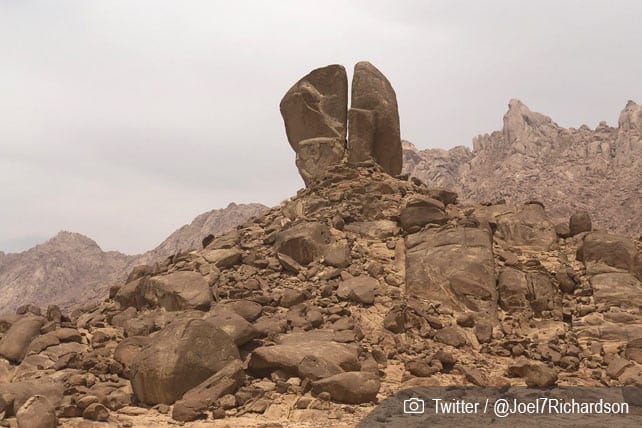
As part of its recent modernization efforts, Saudi Arabia is opening the Kingdom’s doors to non-religious visitors from 49 nations, including the U.S. Tourist e-visas are available within minutes, officials say, and visitors are exempt from some social restrictions. Though “modest clothing” is still required, women won’t need to wear the head-to-toe abaya or be accompanied by a man.
Until now, only businesspeople, their families, and Muslims on pilgrimage have been allowed into Saudia Arabia. On Twitter , the Kingdom boasts about its “rich traditions and warm-hearted people.” Tourism chief Ahmed al-Khateeb says, “Visitors will be surprised…by the treasures we have to share—five UNESCO World Heritage Sites , a vibrant local culture, and breathtaking natural beauty.” He also encourages investors to join the “fastest-growing tourism sector on earth.”
Although Saudi officials hope to attract 100 million visitors and 1 million new tourist-sector jobs by 2030, some experts are skeptical. The Kingdom first “needs to raise its profile as a possible holiday destination,” says Jim O’Brien, who owns a U.K.-based travel company. “For years it has been very closed to visitors, so this may take some time.”
Factors such as regional competition, global connectivity, security, and geopolitical risks will be key, says economist John Sfakianakis. Because so many Muslims journey to the holy cities of Mecca and Medina, Saudi Arabia already has a solid network of air travel and hotels.
The Timing Behind the Move
Welcoming foreigners is part of Vision 2030 , the reform program of Saudi Crown Prince Mohammed bin Salman . He’s been trying to diversify the Kingdom’s economy and reduce its reliance on oil. Meanwhile, bin Salman has faced concerns about human rights violations, including the Yemen crisis and the 2018 murder of dissident journalist Jamal Kashoggi .
The tourism announcement comes just weeks after a delegation of American Christian evangelical leaders met with bin Salman and other Saudi officials. The leaders, who traveled to the Kingdom last month as “ambassadors for Christ,” says they were building relationships and encouraging continued reform. Support for Israel is important for many evangelicals.
The September visit, which occurred during the week of the 9/11 anniversary , was “in defiance of those that aim to derail reform in the Kingdom through an embrace of hate and fear rather than courage and moderation,” according to the group.
Biblical Sites and Other Attractions to Visit
Saudi Arabia is much more than just desert, with archaeological and architectural wonders and several biblical sites of interest. Some people, including YouTuber Ryan Mauro , believe the “real” Mount Sinai, where God gave Moses the Ten Commandments , is Saudi Arabia’s Jebel al-Lawz mountain . An ancient well is believed to be the meeting place of Moses and his wife, Zipporah. And Nebuchadnezzar, king of Babylon, is believed to have visited the ruins of Dedan, Wadi Tayyib, and Tayma.
Living Passages , an Idaho-based travel company, launched its “ first-ever Christian tour of rare sites ” in Saudi Arabia. Author Joel Richardson , who led a group to “Jethro’s Caves in the Land of Midian,” says, “This portends to be the most significant new archaeological site in modern history.” The sold-out tour, which cost $9,000 per person, also includes a stop at the Split Rock of Horeb , from which God provided water for the Israelites. “We’re tremendously blessed that the Saudi government is allowing us to visit the Kingdom to see some of its rich historical and geographic treasures,” says Richardson.
Saudi Arabia’s World Heritage Sites include Al-Ahsa , the world’s largest oasis, featuring 2.5 million date palm trees; Mada’in Saleh , an ancient city with well-preserved tombs and cave drawings; and Masmak Fortress in Riyadh, a site key to Saudi Arabia’s formation as a Kingdom of different tribes. Other attractions include the Red Sea coast, palace complexes, King Fahd’s Fountain , the Jubbah rock carvings , the Al Wahbah crater (which has its own salt field), and the Jeddah Tower , billed to be the world’s tallest building upon its completion in 2020.
Guidelines for Tourists
Although some social restrictions are being eased for foreign visitors, they’ll need to pay close attention to Saudi Arabia’s strict codes. Female tourists, though not required to be completely covered, still must cover their shoulders and knees in public. Men shouldn’t wear shorts or go shirtless in public. Guidelines for “modest clothing” also apply at beaches.
Christians are advised against bringing Bibles and any non-Islamic materials into Saudi Arabia. Officials have indicated that having a Bible for private worship may be okay, but the Kingdom’s religious police could report you for displaying one in public. Bringing a large quantity of Bibles into Saudi Arabia could result in “ severe penalties .”
RELATED ARTICLES MORE FROM AUTHOR

Former Trump Official Elizabeth Neumann Wants To Combat Christian Extremism

Tornado Rips Steeple off Pennsylvania Church During Worship Service

Dog the Bounty Hunter Used To ‘Beat Them Down.’ Now, He’s ‘Going After Souls’

WATCH: Greg Laurie’s Wife, Cathe, Tells Moms To ‘Check Out From What Fuels Your Mommy Guilt’

Texas Church Fires Pastor Charged With Internet Crimes Against Children
- Our Mission
- Privacy Policy

- HALAL ECONOMY
Saudi Arabia’s Drive for Tourists Opens Unexpected Doors to Christian Visitors
Welcome to Saudi Arabia’s drive for tourists, where ancient heritage meets modern allure. In a thrilling journey across Saudi Arabia’s unforgiving desert, five Toyota Land Cruisers embarked on a freshly paved highway, uncharted on maps. This expedition led them to a desolate beach at the sea’s inlet separating the kingdom from Egypt. Among the adventurers were fifteen tourists who rallied around Joel Richardson, a preacher hailing from Kansas.
In the waning light of a setting sun, with the mountains of the Sinai Peninsula merely a silhouette across the water in Egypt, Richardson evoked the biblical Exodus. He prompted the group to envision being on the other side with Moses, escaping Pharaoh’s army as the sea tore apart.
With a Bible in hand and glasses on, Richardson recited verses of praise for the divine. Among his audience were two retirees from Florida, a Colorado-based pharmacist, an Idaho bookkeeper, and an Israeli archaeologist. This motley crew was not exactly the type of tourist Saudi officials anticipated when they opened their borders to leisure tourism in 2019. The aim was to diversify their oil-reliant economy and project a new global image.
Instead of the predicted adventurers and luxury travelers, the conservative Islamic kingdom found itself playing host to Christians. These visitors, including Baptists, Mennonites, and self-proclaimed “children of God,” were among the first to utilize the new Saudi tourist visas. Their ranks have been growing steadily, attracted by the idea that Saudi Arabia, not Egypt, is the site of Mount Sinai, where the Ten Commandments were revealed according to Jewish and Christian Scriptures.
Read this: Is The Tourism Sector In Saudi Arabia Sustainable?
Such claims have met with pushback from mainstream biblical scholars, but this hasn’t dampened the enthusiasm of the Christian pilgrims. For many, this journey offers a once-in-a-lifetime opportunity to pursue evidence they believe could validate the truth of the Exodus.
Before 2019, Saudi Arabia’s tourism sector was dominated by Islamic pilgrims visiting Mecca. Open practice of other religions was largely forbidden, arriving Christian tourists a significant departure from the norm. The transformation was set in motion in the early 2000s, with a wave of Saudis studying in the United States and social changes triggered by the rise of Prince Mohammed bin Salman .
Despite these changes, religious taboos persist, and many are uncertain about what’s officially permitted and what isn’t. However, the consensus is clear: increasing tourism is a priority for economic diversification. From a cultural perspective, Saudis view tourism as a chance to challenge Western stereotypes about them and showcase their unique cultural heritage.
In this rapidly evolving landscape, Saudi Arabia has started to attract Christian travelers with its newly launched tours. The Richardson-led tour, priced at $5,199 per person, covers an area selected for the mega-project Neom, a futuristic city planned by Prince Mohammed. Yet, some Christian tourists express concern about the preservation of archaeological sites due to such development.
For many Christian tourists, their interest in Saudi Arabia is linked to the belief that it houses Mount Sinai, although this claim is disputed by many experts. Regardless of the scholarly debates, these tourists remain fascinated by the prospect of exploring their faith’s roots in this unexpected landscape.
The mixture of adventure, religious exploration, and cultural exchange forms an alluring cocktail for many Christian tourists. For them, Saudi Arabia offers an opportunity to make tangible their long-held beliefs. And for some, the prospect of finding signs of the biblical Exodus in the Saudi desert is nothing short of miraculous.
As they explored Saudi Arabia, many tourists were overcome with emotions tied to their faith, manifesting a deep connection to the biblical stories they had only read about before. Indeed, for many of these tourists, the desert of Saudi Arabia has become a hallowed ground, teeming with the promise of divine encounters. Embark on an unforgettable adventure and witness Saudi Arabia’s drive for tourists, a destination that promises to leave you awe-inspired and wanting more.
Brazilian F&B Companies to Expand Global Presence with Halal Brazil
How Hajj Has Become a Billion-Dollar Industry in Saudi Arabia
You may like
Your email address will not be published. Required fields are marked *
Save my name, email, and website in this browser for the next time I comment.
Top 8 Ways Halal Cosmetics Are Reshaping Fashion in 2024
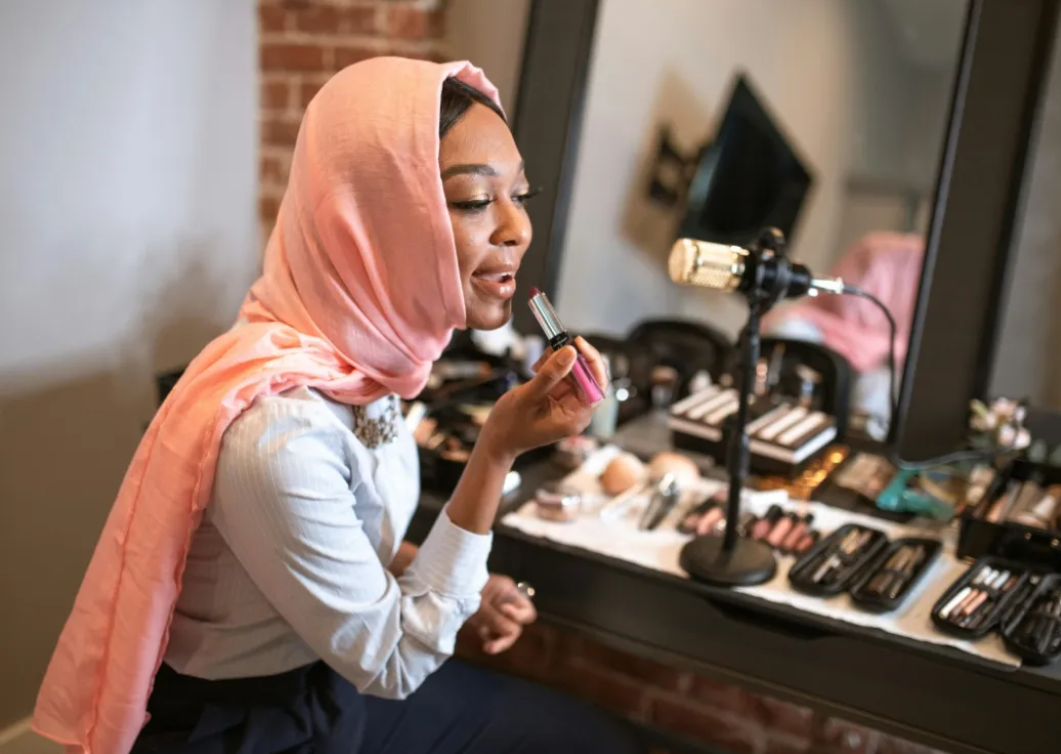
By Aamer Yaqub
In recent years, the global cosmetic industry has witnessed a significant shift towards more ethical, sustainable, and inclusive products, with halal cosmetics emerging as a powerful trend reshaping fashion in 2024. This isn’t just a niche market anymore; it’s a burgeoning phenomenon that’s making waves across the fashion industry, influencing consumer choices and brand strategies alike. Here’s a look at the top 8 ways halal cosmetics are transforming the landscape of fashion today.
1. Expanding Consumer Base
One of the most significant impacts of halal cosmetics is their appeal to a broader audience. Initially targeted at Muslim consumers who seek products that comply with Islamic law, halal cosmetics have transcended cultural boundaries to attract non-Muslim buyers too. This broad appeal is largely due to the ethical manufacturing processes and the absence of harmful ingredients, which resonate with the growing global demand for cleaner, safer beauty products. This expansion is not just reshaping who shops for these products but also how companies market them.
2. Emphasis on Ethical Production
Halal cosmetics are not only defined by their compliance with Islamic law but also by their commitment to ethical production standards. These products are often cruelty-free, not tested on animals, and manufactured using fair labor practices, which appeals to ethically conscious consumers. As sustainability becomes a cornerstone in consumer products, halal cosmetics lead the way, showing how fashion and ethics can coexist harmoniously.
3. Boost in Natural Ingredients
At the heart of many halal cosmetic products is the use of natural and organic ingredients. Avoiding alcohol and animal-derived substances is a requirement for halal certification, which has encouraged brands to innovate with plant-based and mineral-based ingredients. This shift is significantly influencing broader fashion trends, as consumers increasingly seek products that are both ethically produced and beneficial for their health and the environment.
4. Influence on Product Transparency
Transparency is a big buzzword in the beauty industry, and halal cosmetics are at the forefront of this movement. Brands specializing in halal products often provide extensive information about ingredient sourcing, manufacturing processes, and supply chains. This transparency reassures consumers and sets a standard that many other brands are now aspiring to meet, thus reshaping expectations and demands within the fashion industry.
5. Enhancement of Brand Images
Companies that offer halal cosmetics are often viewed favorably for their inclusive and ethical business practices. This positive brand image can translate into increased customer loyalty and market share. As fashion brands seek to differentiate themselves in a crowded market, adopting halal principles can be a powerful tool for enhancing their reputation and attracting a diverse customer base.
6. Innovations in Product Offerings
The rise of halal cosmetics has spurred innovation across the beauty industry. From halal-certified nail polishes that allow water penetration for wudu (Islamic purification rituals) to breathable makeup that maintains skin health while meeting religious standards, these innovations are not only practical but also revolutionary, influencing broader beauty trends and consumer expectations.
7. Growth in Market Niches
Halal cosmetics have carved out significant niches in the beauty market, prompting even mainstream brands to develop halal-certified lines to cater to this growing demographic. This development is reshaping the competitive landscape, compelling brands to diversify their offerings and consider religious and ethical factors in product development.
8. Global Market Expansion
Finally, the global reach of halal cosmetics highlights the impact of globalization in the fashion industry. With major growth in regions like Southeast Asia, the Middle East, Europe, and North America, these products are fostering cross-cultural exchanges and broadening the global market landscape. Brands are not only selling internationally but also incorporating global influences into their products, which in turn influences fashion trends worldwide.
Halal cosmetics are more than just a compliance label; they are a movement towards more ethical, inclusive, and conscientious fashion. By addressing the needs and values of a diverse consumer base, promoting ethical production practices, and driving innovation, halal cosmetics are indeed reshaping the fashion industry in 2024. As this trend continues to grow, we can expect to see even more significant transformations in how products are made, marketed, and embraced by consumers around the globe. Whether you adhere to a halal lifestyle or simply seek more ethical beauty solutions, the rise of halal cosmetics is a development that offers exciting possibilities for everyone in the fashion ecosystem.
Sanctity of Hijab Being Undermined by the Liberal Media Globally

By Hafiz M. Ahmed
The hijab—a traditional headscarf donned by countless Muslim women as an emblem of their modesty and deep-rooted faith—has long captivated global media attention. Yet, despite its religious significance, the portrayal of the hijab in the media frequently strays far from its true intent. It’s disheartening to see such a profound symbol of personal and religious commitment often twisted into something barely recognizable. Let us unpack the troubling ways the hijab is misrepresented in the media and explore the ironic twist of how these portrayals can sometimes feed into the very issues of vulgarity and objectification they purport to criticize. The media’s approach is not just misleading—it’s harmful, reinforcing stereotypes and widening cultural divides. It’s time for a change.
Media’s Misrepresentation of the Hijab
The hijab’s portrayal in global media varies widely, but common themes often emerge that skew its intended meaning and significance:
- Stereotyping and Sensationalism: Media often pigeonhole the hijab as a tool of oppression, ignoring the agency of countless women who choose to wear it for personal or religious reasons. This narrative is not only reductive but also erases the diversity of Muslim women’s experiences and identities. It fosters a misunderstanding of the hijab as something imposed rather than chosen, overshadowing the empowerment many women derive from wearing it.
- Focus on Controversy: The hijab frequently appears in media stories related to bans or legal battles in Western countries, framing the garment as a point of contention rather than a personal article of faith. This focus on controversy rather than understanding reinforces negative stereotypes and places Muslim women who wear the hijab in a defensive position.
- Sexualization in Media Portrayals: Ironically, while the hijab is intended to divert attention from a woman’s physical appearance and emphasize her character and values, some media portrayals sexualize the hijab. By focusing excessively on the hijab in contexts related to sexuality or freedom, these portrayals link the garment to the very vulgarity and objectification it seeks to avoid.
How Misrepresentations Promote Vulgarity
The paradox of the hijab’s portrayal in the media is that the misrepresentations can contribute to the societal issues they ostensibly critique:
- Objectification: By framing the hijab as a symbol of oppression or sexual repression, the media inadvertently focuses undue attention on the bodies and choices of hijab-wearing women, thus objectifying them. This attention can strip the hijab of its intended purpose, turning a personal and spiritual decision into a public spectacle. And, it is happening in many places like France , America, and so many other countries.
- Cultural Misunderstandings: Misrepresentations can lead to broader cultural misunderstandings and tensions. When the hijab is portrayed primarily through a lens of controversy or oppression, it perpetuates a view of Muslim women that is limited and often negative. This can hinder cross-cultural understanding and respect.
- Increased Scrutiny and Harassment: The sensationalist coverage increases scrutiny and pressure on hijab-wearing women, making them targets for harassment or discrimination. Such outcomes are starkly at odds with the media’s purported advocacy for freedom and women’s rights.
Steps Towards Accurate Representation
For the media to better serve global understanding and respect for cultural differences, several steps can be taken:
- Inclusive and Diverse Reporting: Media outlets should strive to include the voices of hijab-wearing women in their reporting, providing a platform for them to share their experiences and perspectives directly.
- Educational Programming: Media professionals should be encouraged to participate in cultural competence training, helping them understand the diverse reasons behind wearing the hijab and the broader context of Islamic practices.
- Highlighting Positive Stories: Focusing on the positive aspects of wearing the hijab and the success stories of Muslim women around the world can help counterbalance the prevailing negative stereotypes and provide a fuller picture of the hijab’s role in various societies.
The repeated misrepresentation of the hijab by the liberal media not only distorts public understanding but also challenges the dignity of countless Muslim women who choose to wear it. It is high time we question these portrayals and push for a narrative that respects and reflects the true values of modesty and faith embodied by the hijab. Let us know your thoughts. How have you seen the hijab portrayed in your community or media outlets? Do you believe these portrayals accurately reflect the intentions and personal choices of hijab-wearing women? Join the conversation below and share your insights. Together, we can foster a more informed and respectful discourse
Promoting Halal Entrepreneurship Among Students: Opportunities and Challenges

Today’s globalized world has made “halal” a huge corporate force, not just a religious term. Halal entrepreneurship is seen in food, cosmetics, medicines, and banking. It is a growing industry that offers great chances for new ideas and community growth. So, encouraging students to start their own halal businesses is becoming more popular as a key way to improve education and the economy. But what opportunities does this present, and what challenges do aspiring entrepreneurs face? Let’s dive in and explore.
The Rise of Halal Entrepreneurship
Understanding the market.
Halal entrepreneurship involves starting Islamic businesses. These businesses serve Muslims, but non-Muslims are increasingly drawn to them because they associate halal with ethical buying, quality, and sustainability. Fast market growth is fantastic. Global halal sales are likely to soar in the next years. But what does this growth mean for students and aspiring entrepreneurs?
A Platform for Innovation
For students, the halal market offers a platform for innovation. There are many opportunities to be creative and develop new halal-certified products and services for Muslim customers. Innovation goes beyond product creation. Their sale, use, and marketing matter too. New ideas and technology skills from students can have a tremendous effect.
The Importance of Good Writing Skills in Halal Entrepreneurship
Writing is crucial in halal business. Good writing skills get ideas across, persuade people, and create engaging product and service stories. They also go well with a business spirit. Students who wish to create halal enterprises must clearly and convincingly express their goals, ideals, and company details. This is crucial for business strategies, product descriptions, marketing materials, and daily interactions with buyers, partners, and investors.
In halal commerce, where morality and Islamic rules are paramount, precise speech is crucial. Students must describe their products and services, as well as how they follow halal rules and why. You must understand religion and audience expectations to do this. This requires clear, intentional communication. Strong writing abilities are essential to educate a wide audience about halal items and resolve any ambiguities.
Improving these writing skills is a continuous process, one that can be significantly enhanced with the support of experienced professionals. For students looking to excel in halal entrepreneurship, seeking assistance from EduBirdie essay writers for hire can be a game-changer. These experts can help you organize, persuade, and write clearly. Professional writers can help students persuade a wide audience by developing a business plan and marketing materials or improving their communication skills. Expert writing help may be essential in halal companies, where competition is tough and details matter.
Opportunities for Student Entrepreneurs
Bridging tradition and modernity.
Halal company enables students to combine old values with current business practices, which is great for them. They must follow Islamic laws and use cutting-edge business and communication techniques to reach and help Muslims worldwide. By doing this, student businesses can help bring the halal market up to date and make it bigger.
Educational and Career Advancements
Students who take part in halal entrepreneurship get a one-of-a-kind learning experience that lets them deal with real-life business problems and use what they’ve learned in the classroom in real-life situations. In addition, this journey into entrepreneurship can make students’ resumes look much better, which can lead to job chances in the global halal industry and beyond.
Challenges in Promoting Halal Entrepreneurship
Navigating regulatory complexities.
Student businesses in the halal sector struggle to label and market halal products due to the many regulations and certifications. These standards vary per country, making it difficult for students unfamiliar with halal licensing to learn rapidly.
Access to Capital and Resources
Halal startups need money and tools to get off the ground, just like any other business. However, it can be especially hard for students to get funding because they might not have the security or track record that investors and financial institutions normally look for. Furthermore, finding halal-compliant funding options adds an additional layer of complexity.
Overcoming the Challenges
Leveraging technology and networks.
To overcome these challenges, student entrepreneurs can leverage technology and networks. Digital platforms can facilitate access to halal certification information, mentorship, and even funding. Additionally, building a strong network within the halal industry and the broader entrepreneurial community can provide valuable support, advice, and opportunities.
Educational Institutions’ Role
Educational institutions play a pivotal role in supporting halal entrepreneurship among students . By educating entrepreneurship and the halal industry, undergraduate and graduate schools may prepare students for the halal market. Students can also connect with lecturers, professionals, and investors through institutions.
There are many benefits and drawbacks to fostering halal business among students. When the halal market grows, creative, ethical entrepreneurs are needed more than ever. Students may establish outstanding businesses and make the halal industry more dynamic, open, and long-lasting by seizing chances and overcoming challenges. Halal business owners confront many hurdles, but the rewards can be great if they are ready.

Turkey’s Bold Stand Against Israeli Aggression in Gaza: A Call for Global Solidarity

What is Microtakaful and How Does It Work?

AFRIEF Congratulates New Zamfara State Governor

A Salutary Tribute to General Ibrahim Badamasi Babangida: Architect of Islamic Finance in Nigeria
Climate Policy In Indonesia: An Unending Progress For The Future Generation
The History and Evolution of Islamic Finance
Islamic social finance in africa – webinar recording, the rise of islamic finance – knowledge works.
- AGRIBUSINESS & AGRICULTURE
- BUSINESS & ECONOMY
- DIGITAL ECONOMY & TECHNOLOGY
- EVENTS & ANNOUNCEMENTS
- HEALTH & EDUCATION
- IN CASE YOU MISSED IT
- INTERNATIONAL POLITICS
- ISLAMIC FINANCE & CAPITAL MARKETS
- KNOWLEDGE CENTRE, CULTURE & INTERVIEWS
- PUBLICATIONS
- SPECIAL FEATURES/ECONOMIC FOOTPRINTS
- SPECIAL REPORTS
- SUSTAINABILITY & CLIMATE CHANGE
- THIS WEEK'S TOP STORIES
- UNCATEGORIZED
- UNITED NATIONS SDGS

The Climate Crisis is Now ‘Code Red’: We Can’t Afford to Wait Any Longer

IPCC report: ‘Code red’ for human driven global heating

Revolutionizing Halal Education Through Technology

Remembering Maryam Ibrahim Babangida: A Legacy of Grace, Philanthropy, and Leadership

Distributed Infrastructure: A Solution to Africa’s Urbanization
- Archon News
Saudi Arabia: Christian tourists at risk if they display their Bible in public
Christianity in Saudi Arabia is virtually nonexistent: any religious expression other than Islam is strictly forbidden, and any Saudi citizens who are Christians must practice their faith in secret, and risk imprisonment and even death by doing so. Foreign laborers who are Christians in Saudi Arabia must make no public display of their faith. In light of all that, while the regulations for tourists about Bibles and other Christian items are undeniably repressive, they actually represent a certain relaxation of regulations: visitors previously had their crosses or Bibles confiscated, and were expelled from the country if found with Christian material. Please keep the people of Saudi Arabia in your prayers and pray that this heralds the beginning of a real opening of the country to the light of the Gospel.
“Christian tourists at risk if they display their Bible in public in Saudi Arabia,” Barnabas Fund , October 14, 2019:
Saudi Arabia opened its doors to tourists for the first time with the launch of a tourist e-visa on 27 September, but Christian visitors should be aware that displaying a Bible in public, or taking more than one Bible into the country, could place them at risk of arrest. The new regulations for tourists state that a Bible may be brought into the country provided it is for personal use only. Bibles must not be displayed in public and anyone found bringing a large number of Bibles will face “severe penalties”. The ruins of an ancient church building, probably dating from the fourth century, were discovered in Saudi Arabia in the 1980s. No visitors are allowed to the site [Source: Assyrian International News Agency (AINA)] Saudi Arabia follows a strict Wahhabi interpretation of Islam and it is impossible for anyone living in the country to openly practise Christianity….
Subscribe to our mailing list
- Protecting Faith News

Webinar: Putin, Patriarch Kirill, and the Threat to Global Orthodoxy, May 19
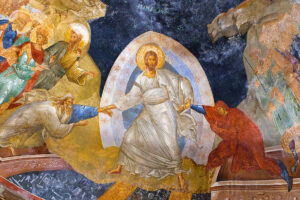
Archons Condemn Conversion of Ancient Chora Church into a Mosque

Art and Faith
Paschal message of national commander dr. limberakis.

Pennsylvania Dental Association Installs Dr. Cary J. Limberakis as President

Rutgers Hall of Distinguished Alumni Honors Archon Mike Emanuel
- Ecumenical Patriarchate
- Greek Orthodox Archdiocese
- Ecumenical Patriarch Bartholomew Foundation
- 4th Archon International Conference

Download Our App iOS
- Skip to main content
- Skip to after header navigation
- Skip to site footer

The Halal Times
Global Halal, Islamic Finance News At Your Fingertips
Saudi Arabia’s Drive for Tourists Opens Unexpected Doors to Christian Visitors

Welcome to Saudi Arabia’s drive for tourists, where ancient heritage meets modern allure. In a thrilling journey across Saudi Arabia’s unforgiving desert, five Toyota Land Cruisers embarked on a freshly paved highway, uncharted on maps. This expedition led them to a desolate beach at the sea’s inlet separating the kingdom from Egypt. Among the adventurers were fifteen tourists who rallied around Joel Richardson, a preacher hailing from Kansas.
In the waning light of a setting sun, with the mountains of the Sinai Peninsula merely a silhouette across the water in Egypt, Richardson evoked the biblical Exodus. He prompted the group to envision being on the other side with Moses, escaping Pharaoh’s army as the sea tore apart.
With a Bible in hand and glasses on, Richardson recited verses of praise for the divine. Among his audience were two retirees from Florida, a Colorado-based pharmacist, an Idaho bookkeeper, and an Israeli archaeologist. This motley crew was not exactly the type of tourist Saudi officials anticipated when they opened their borders to leisure tourism in 2019. The aim was to diversify their oil-reliant economy and project a new global image.
Instead of the predicted adventurers and luxury travelers, the conservative Islamic kingdom found itself playing host to Christians. These visitors, including Baptists, Mennonites, and self-proclaimed “children of God,” were among the first to utilize the new Saudi tourist visas. Their ranks have been growing steadily, attracted by the idea that Saudi Arabia, not Egypt, is the site of Mount Sinai, where the Ten Commandments were revealed according to Jewish and Christian Scriptures.
Read this: Is The Tourism Sector In Saudi Arabia Sustainable?
Such claims have met with pushback from mainstream biblical scholars, but this hasn’t dampened the enthusiasm of the Christian pilgrims. For many, this journey offers a once-in-a-lifetime opportunity to pursue evidence they believe could validate the truth of the Exodus.
Before 2019, Saudi Arabia’s tourism sector was dominated by Islamic pilgrims visiting Mecca. Open practice of other religions was largely forbidden, arriving Christian tourists a significant departure from the norm. The transformation was set in motion in the early 2000s, with a wave of Saudis studying in the United States and social changes triggered by the rise of Prince Mohammed bin Salman .
Despite these changes, religious taboos persist, and many are uncertain about what’s officially permitted and what isn’t. However, the consensus is clear: increasing tourism is a priority for economic diversification. From a cultural perspective, Saudis view tourism as a chance to challenge Western stereotypes about them and showcase their unique cultural heritage.
In this rapidly evolving landscape, Saudi Arabia has started to attract Christian travelers with its newly launched tours. The Richardson-led tour, priced at $5,199 per person, covers an area selected for the mega-project Neom, a futuristic city planned by Prince Mohammed. Yet, some Christian tourists express concern about the preservation of archaeological sites due to such development.
For many Christian tourists, their interest in Saudi Arabia is linked to the belief that it houses Mount Sinai, although this claim is disputed by many experts. Regardless of the scholarly debates, these tourists remain fascinated by the prospect of exploring their faith’s roots in this unexpected landscape.
The mixture of adventure, religious exploration, and cultural exchange forms an alluring cocktail for many Christian tourists. For them, Saudi Arabia offers an opportunity to make tangible their long-held beliefs. And for some, the prospect of finding signs of the biblical Exodus in the Saudi desert is nothing short of miraculous.
As they explored Saudi Arabia, many tourists were overcome with emotions tied to their faith, manifesting a deep connection to the biblical stories they had only read about before. Indeed, for many of these tourists, the desert of Saudi Arabia has become a hallowed ground, teeming with the promise of divine encounters. Embark on an unforgettable adventure and witness Saudi Arabia’s drive for tourists, a destination that promises to leave you awe-inspired and wanting more.
About Hafiz M. Ahmed
Hafiz Maqsood Ahmed is the Editor-in-Chief of The Halal Times, with over 30 years of experience in journalism. Specializing in the Islamic economy, his insightful analyses shape discourse in the global Halal economy.

Reader Interactions
Leave a reply cancel reply.
You must be logged in to post a comment.

Christian Travel for the Intrepid Berean
The Biblical Destination Experts
- 7 Churches of Revelation
- Israel & Jordan
- Saudi Arabia
- Petra & Jordan with Arabia
- South Africa Safaris
- Europe Reformation
- Custom Individual Travel
- Christian Singles Travel
- Red Sea & Arabia
- Footsteps of Paul
- Seven Churches of Revelation
- Joel Richardson
- Frank Turek
- Eli Shukron
- Steve Cioccolanti
- Dr. Miles Jones
- Dr. Yohannes Zeleke
- Available Travel Itineraries
- Christian Travel Blog
- Christian Travel Brochures
- Custom Group Tours
- Red Sea Scuba Diving & Snorkeling
- Saudi eVisa Requirements
- Safety, Cancel for Any Reason Insurance
- Learn of the Exodus
- Testimonials
- Our Travel Assurance
- Frequently Asked Questions
- Traveler Testimonials
Opened Biblical Sites in Saudi Arabia Now Available for Privately Chartered Tours with Christian Tour Operator
- Print Friendly
Coeur d’Alene, ID – Living Passages, a Christian tour operator in the United States of America began offering tours to reach Exodus sites soon after Saudi Arabia opened Biblical sites. These sites had previously been closed for decades.
These tours arrived on the coattails of the second delegation of U.S. Evangelical leaders hosted by Saudi Crown Prince Mohammed bin Salman. After these meetings, the Prince agreed to open Saudi Arabia sites to tourists.
Living Passages took its first groups to Saudi Arabia in October of 2019 just two weeks after the official opening of the sites.
Two privately chartered, luxury yacht cruise itineraries opened for registration on February 23 rd , 2020, and more tours are in the books. The groups will be among the few who have been able to see places the Israelites traveled firsthand since the sites were recently opened. The cruises will take place in early 2021 .
How is Saudi Arabia Preparing For Western Tourism?
Saudi Arabia has signed memorandums of understanding totaling 100 billion riyals ($26.6 billion) with regional and international investors to begin construction of infrastructure for tourism.
“The atmosphere in Saudi Arabia is changing. They are hard at work developing the country for Western tourism,” says Rhonda Sand, founder of Living Passages. “Upon our initial visit, we observed construction of critical infrastructure to sustain tourists. Not only are the accommodations beautiful, the untouched landscape is breathtaking!”
Beyond the historic sites, there are new museums, first-class hotels and an international airport that are being prepared for a flow of international tourists. The government is developing the northwest corner of Saudi into a smart-city called Neom. The mega-city in Tabuk will border both Egypt and Jordan and is on track to open by 2025.
Author Joel Richardson , who traveled as a leader with Living Passages on one of its early ground tours to Saudi Arabia, said it was exciting to be there on the ground floor.
“What we have experienced here has been truly, truly nothing short of stunning,” says Richardson.
Which Newly Opened Biblical Sites Will Be Highlighted?
The groups will visit the Jebel al-Lawz mountain in the ancient land of Midian. Bedouin and Jewish traditions have long attested this site to be the real Mount Sinai. The controversial theory contests against the traditional location on the Sinai Peninsula. Near the mountain is the Split Rock of Horeb – a massive stone split in two with water erosion around the base.
“That experience alone is completely life altering, to see some of the archaeological sites around the mountain” says Richardson. “All I’ll say is that the mountain sells itself … If you were creating a movie set for the story of Mt Sinai, you couldn’t create a better set. It’s stunning.”
Traveling via cruise will allow the group to get close the Israelites’ crossing areas, see the land of Avaris (Goshen), where the Israelites originated, and see Cairo. This is in addition to many of the desert sites outlined in Numbers Chapter 33.
Other sites on the itinerary include the Caves of Jethro in the town of Al-Bad’, believed to be the capital of ancient Midian. The town has an ancient well, held to be where Moses met his wife (a daughter of Jethro) after fleeing Egypt. The groups will explore the ruins of Dedan, Wadi Tayyib along the Red Sea coast, and Tayma (where Babylonian King Nebuchadnezzar may have lived).
Booking is now open for Living Passages’ upcoming cruises to Saudi Arabia in early 2021.
About Living Passages
Living Passages is a Christian tour and cruise company located in Coeur d’Alene, Idaho. Living Passages specializes in travel that explores non-traditional authentic Biblical locations around the world. Each tour is led by world-renowned scholars and acclaimed authors. Owner Rhonda Sand has been offering unique travel experiences for over 25 years. Saudi Arabia is the latest location addition to Living Passages’ international destinations.
Related Articles
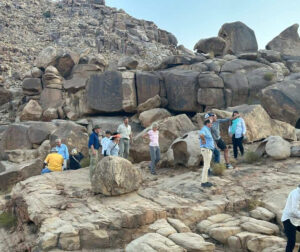
Pin It on Pinterest
- Updated Terms of Use
- New Privacy Policy
- Your Privacy Choices
- Closed Caption Policy
- Accessibility Statement
This material may not be published, broadcast, rewritten, or redistributed. ©2024 FOX News Network, LLC. All rights reserved. Quotes displayed in real-time or delayed by at least 15 minutes. Market data provided by Factset . Powered and implemented by FactSet Digital Solutions . Legal Statement . Mutual Fund and ETF data provided by Refinitiv Lipper .
Saudi Arabia opens tourism to ancient biblical sites: 'The atmosphere is changing'
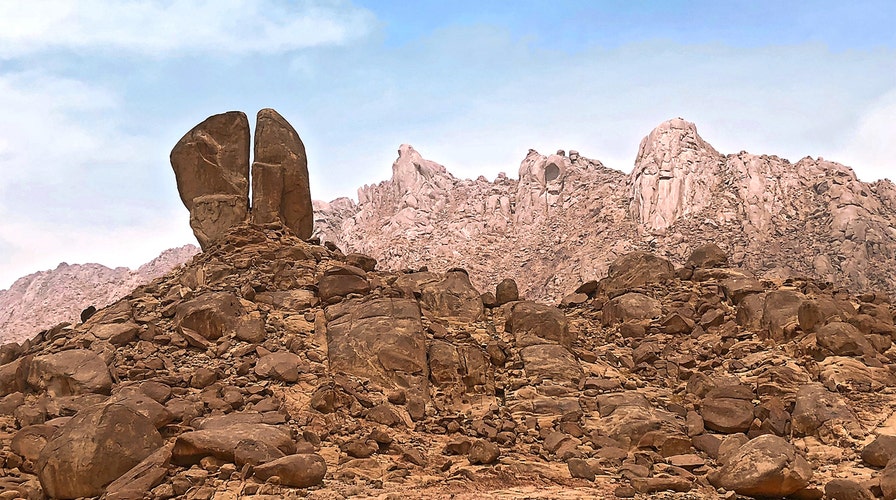
Fox News Flash top headlines for Oct. 14
Fox News Flash top headlines for Oct. 14 are here. Check out what's clicking on Foxnews.com
As Saudi Arabia increasingly opens up to tourists, a travel group in the country started offering this week a "first-ever Christian tour of rare sites," promising participants a close-up look at a controversial location believed to be the real Mount Sinai — the mountain where, according to the Bible, God gave Moses the Ten Commandments.
Saudi Arabia, which has been closed for tourism the last several decades and has a dismal record on human rights, decided to give tourist visas on the heels of the second delegation of evangelical leaders from America, hosted by Saudi Crown Prince Mohammed bin Salman last year and earlier this year.
IRAN HAS WORLD’S ‘FASTEST-GROWING CHURCH,’ DESPITE NO BUILDINGS - AND IT'S MOSTLY LED BY WOMEN: DOCUMENTARY
"The atmosphere in Saudi Arabia is changing," said Rhonda Sand, owner of U.S.-based travel company Living Passages . "They are hard at work developing the country for Western tourism."
Living Passages is taking a group of 25 people this week through "Jethro's Caves in the land of Midian," believed to be ancient Midian. The tour will be led by Joel Richardson, the author of "Mount Sinai in Arabia: The True Location Revealed."
“This portends to be the most significant new archaeological site in modern history," Richardson told Fox News. “We're tremendously blessed that the Saudi government is allowing us to visit the kingdom to see some of its rich historical and geographic treasures.”
KIM KARDASHIAN, KIDS BAPTIZED AT ARMENIAN CHURCH AS KANYE WEST CONFIRMS HE 'GOT SAVED' THIS YEAR
Richardson, who said this is one of the most faith stirring experiences of his life, explained tourists will be flocking to see the historical mountain and other sites covered in a short documentary, "Finding the Mountain of Moses: The Real Mount Sinai in Saudi Arabia," by Ryan Mauro, who will also be leading a tour in February.
ANDREW BRUNSON, PASTOR IMPRISONED IN TURKEY FOR CHRISTIAN FAITH, TELLS 'GOD'S SIDE OF THE STORY'
Most notably, the group is visiting the Jebel al-Lawz mountain in the ancient land of Midian. Early Jewish, Christian and Bedouin traditions have long attested this site to be the real Mount Sinai. The controversial theory contests the traditional location in the Egyptian Sinai Peninsula. On the north-west side of the mountain is the Split Rock of Horeb — a massive stone several stories tall, split down the middle, with evidence of water erosion at its base.

The Split Rock of Horeb in Saudi Arabia, believed to be the rock that Moses struck from which water flowed out of for the Israelites. (Living Passages)
This week tourists will visit the town that has an ancient well, held to be where Moses met his wife Zipporah, daughter of Jethro, after fleeing Egypt. The group will explore the ruins of Dedan, Wadi Tayyib – along the Red Sea coast – and Tayma, where Babylonian King Nebuchadnezzar may have occasionally stayed.
CLICK HERE FOR THE ALL-NEW FOXBUSINESS.COM
Beyond the historic sites, the kingdom is hoping to increase international tourism with new museums and first-class hotels — and even a smart city in the northwest called Neom, set to be fully functinal by 2025.

Fox News' "Antisemitism Exposed" newsletter brings you stories on the rising anti-Jewish prejudice across the U.S. and the world.
You've successfully subscribed to this newsletter!
- Starting Up
- Growing a Business
- Inspiration
- For Subscribers
- Write for Entrepreneur
- Entrepreneur Store
- United States
- Asia Pacific
- Middle East
- South Africa
Copyright © 2024 Entrepreneur Media, LLC All rights reserved. Entrepreneur® and its related marks are registered trademarks of Entrepreneur Media LLC
In Focus: Religious Tourism In The Kingdom Of Saudi Arabia Prior to 1946, around 60,000 pilgrims visited Mecca annually; that's a 500x expansion in annual pilgrims to be witnessed in 84 years, should Vision 2030's target of 30 million pilgrims per year be realized.
Aug 18, 2022
You're reading Entrepreneur Middle East, an international franchise of Entrepreneur Media.
This article is a part of Bringing The World To Saudi , a special report sponsored by Saudia and developed by Entrepreneur Middle East in partnership with Lucidity Insights.
Hajj and Umrah are religious pilgrimages performed by Muslims from all over the world. Hajj is an annual six-day pilgrimage to Mecca made by over two million Muslims each year; Islam requires every financially and physically able Muslim to make the journey once in their lifetime. Umrah is a shorter pilgrimage to Mecca that can be performed at any time of year; over 19.1 million pilgrims completed Hajj in 2019.
Hajj and Umrah pilgrimages have taken place over centuries, with the first Umrah pilgrimage recorded to have taken place in 629 CE. Islamic scholars have said that the first Hajj was led by Prophet Muhammad, may peace be upon him, himself in 632 CE, the year of his death. Hajj is the world's largest single annual human gathering today, with nearly 2.5 million pilgrims descending on Mecca together at once, over a one-week period each year. Prior to 1946, around 60,000 pilgrims visited Mecca annually; that's a 500x expansion in annual pilgrims to be witnessed in 84 years, should Vision 2030's target of 30 million pilgrims per year be realized.
The Ministry of Hajj and Umrah is responsible for all pilgrim-related activities, coordinating with over 30 government entities to support the sector, which has over 350,000 people employed by it. In 2020 and 2021, the Ministry cancelled Hajj pilgrimages for non-domestic Muslims due to the health and safety concerns surrounding the COVID-19 pandemic. This proved to be a grave disappointment for Muslims worldwide, and it also had significant economic repercussions on the Saudi economy. Religious tourism contributed the vast majority of the 3% tourism contribution to Saudi Arabia's GDP in 2016. The pandemic has reminded the Kingdom that diversification of not only its economy as a whole, but especially of its tourism sector, is vital for long-term sustainability; it has also highlighted the importance of developing its domestic tourism infrastructure and opportunities.
Related: Driving Economies: Breaking Down The Significance Of The Global Tourism Industry
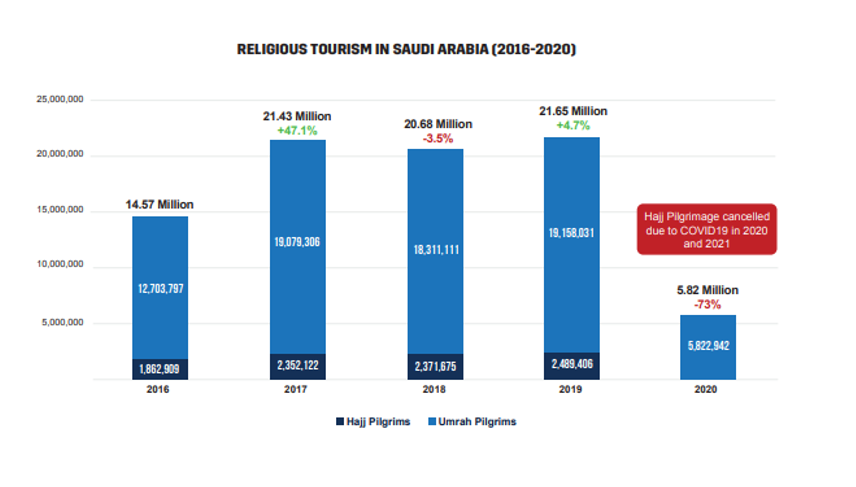
In 2019, the Doyof Al Rahman Vision Realization Program (DARP) was launched under the umbrella of Saudi Arabia's Vision 2030, in order to create a seamless and memorable pilgrim experience program, from airport arrival, to customs, to hotel stay, and transport and logistics throughout. The goal of the program is to upgrade and deliver a distinguished experience for all pilgrims coming to the Kingdom, removing any unnecessary hassles so that they can focus on their personal spiritual journeys. This includes facilitating an e-visa process as well as a seamless arrival into the Kingdom with adequate transportation and logistics to both accommodation and the pilgrim's journey to and from the Two Holy Mosques and holy sites. The pilgrim's journey mapped out in the DARP program also includes initiatives to ensure rituals are performed safely, access to comprehensive health coverage, and ability to extend stays to discover Saudi Arabia's cultural and heritage sites.
DARP has already made strides in implementing several key initiatives that have supported a better pilgrimage experience in the Kingdom, such as, but not exclusive to:
- The e-visa process has reduced visa processing times from 14 days to 5 minutes
- Minimized Saudi immigration wait times with pilgrims now spending an average of only 15 minutes as part of the Makkah Road Initiative, which helps to streamline processes
- Launched a comprehensive health insurance for pilgrims to cover health-, travel-, and accident- related issues
- Protecting and investing in the restoration and development of 40 Islamic holy sites and mosques across the Kingdom
- In March 2022, the Ministry of Hajj and Umrah hosted a two-day conference devoted to the development of Hajj and Umrah services titled Transformation Toward Innovation , aimed at exploring opportunities to enhance services provided to pilgrims

It is the intention of the Ministry of Hajj and Umrah to implement technological advancements wherever it may help to facilitate a better pilgrimage experience, or enhance health, safety, and security. In line with this, there have been several pilot projects, testing the efficacy in distributing digital wristbands and contactless access cards to pilgrims that securely store digital identity information, necessary permits, visa and health information, and immigration documentation. Some of the piloted technologies have also included digital contactless payments functionalities to facilitate easier payments and access throughout the pilgrimage, as well as geotagging for traffic monitoring and safety.
In interviews conducted about such schemes, it was said that contactless ID cards had higher success rates in many of the pilot programs, as many pilgrims had taken off, lost, or accidentally exchanged their wristbands with someone else when washing before prayer. The aspiration in the future is that every pilgrim will get a RFID wristband or contactless card that helps keep all of these important documents and information securely, while also providing easy payment and access to their transportation and accommodation. Indeed, it is a technologically advanced vision of how an integrated visitor experience could be in the Kingdom.
Other programs that have been piloted include the Pilgrimage without a Bag program. This program assists in transporting pilgrims' bags to their accommodation so that it is waiting for them when they arrive. Improvements in food services have also been rolled out, expanding the provision of readymade meals at holy-sites. The Ministry of Hajj and Umrah have also invited young Saudis to volunteer to be assistants, encouraging them to help pilgrims in need of support. There was also a crowd management program that built six transmitting stations and installed 350 sensors placed throughout Mina and at Jamrat Bridge. This network will gather and analyze data about overcrowding and movement of pilgrims. Crowds and movement will also be monitored on high-definition cameras, and the collected data is analyzed at a dedicated crowd-monitoring center.
In line with another Saudi Vision 2030 target of becoming a 70% cashless economy by 2030, the Saudi Central Bank (SAMA) along with the Ministry of Commerce ran a point of sale (POS) system implementation drive across the country, including Mecca and Medina, a region where POS penetration has historically been amongst the lowest in the Kingdom. A POS Machine Implementation Enforcement Program was rolled out in 2019, and was finished in 2021. The implementation of POS systems is meant to both facilitate easier payment transactions for pilgrims and tourists visiting the region, while also cracking down on money laundering and tax evasion by small merchant businesses after the country implemented VAT in 2018. Hajj Bank Cards have also been issued by several local banks, allowing pilgrims to deposit money onto them when they arrive into the kingdom, so they don't have to carry around cash with them.
In 2018, it was announced that King Abdullaziz International Airport (KAIA), Saudi Arabia's largest airport in terms of passenger traffic, would begin looking at expansion works for a new US$7.5 billion passenger terminal dedicated to Hajj and Umrah pilgrims. KAIA handled 31.15 million passengers in 2016, some 3.5% more than in 2015. The masterplan envisages increasing capacity up to 42 million passengers a year by 2025, and 80 million passengers annually by 2035. The new Hajj terminal will be able to process over 7,000 arriving and departing passengers an hour, and will be able to accommodate 80,000 passengers at any one time. The new wing would also cater to the specialist dietary and religious needs of the travelling pilgrims. However, the KAIA construction project was temporarily put on hold during the pandemic.
A new international airport in Taif has been under construction since 2019, with it also becoming an increasingly popular summer resort destination in the Kingdom. The current Taif Airport, with the capacity to handle just over half a million passengers each year, is 30km east of Taif city and 70km from Mecca; though classified as a small regional airport, it does handle a few international flights as well. The new airport to be constructed 120km from Mecca will have a six million passenger capacity when finished, and is expected to help relieve the pressures on KAIA to cater to all 30 million pilgrims expected to travel to Mecca annually, by 2030.
Related: Revealed: Saudia's Transformation To Become "The Wings" Of KSA's Vision 2030
Most Popular Red Arrow
This wellness franchise makes sensory deprivation tanks cool again.
It's not just a Seattle thing.
How to Create an Effective Marketing Plan
From defining your audience to brainstorming content, here's everything you need to know about building a successful marketing plan for your business.
9 Ways Memes Can Rev Up Your Business Marketing
Memes are here to stay. Brands are growing engagement with well-timed meme-marketing strategies.
Planet Fitness Is Increasing Membership Prices for the First Time in Nearly 30 Years
The gym chain's classic membership has traditionally been $10 since 1998.
Prince Khaled bin Alwaleed Urges Entrepreneurs To Leverage Regional Strengths Over Replicating Foreign Models
"I don't want the next Tesla or the next Uber- I want to know what makes you stand out without comparing yourself to a trillion-dollar company."
How This CEO Turned 99 No's Into a $500 Million Sleep Tech Powerhouse
Eight Sleep's Matteo Franceschetti reveals his journey from nightmarish rejection to dream-like motivation.
Successfully copied link
Why More Christians are Taking Pilgrimage to Saudi Arabia
Saudi Arabia is famous for its holy Muslim sites of Mecca and Medina, but many don’t know that the country may be home to one of the most important Christian sites as well. New archeological evidence suggests another possible location for the biblical Mount Sinai – the place believed to be where Moses received the Ten Commandments from God – lies deep in the Saudi Arabian mountains.
With these new findings, Christians from all over the world have chosen to make a pilgrimage to Saudi Arabia to see this destination, Jebel Al-Lawz, for themselves. Could this Saudi mountain really be where Moses received the Ten Commandments? Keep reading to find out.
What is Moses Mountain Called in Saudi Arabia?

Jebel Al-Lawz – located in the northwestern Tabuk region, near the Egyptian border – is often referred to as ‘Moses Mountain’. The name stems from the belief that Moses received the Ten Commandments here and not on Egypt’s Mount Sinai. Jebel Al-Lawz translates to ‘Mountain of Almonds’ due to its light-colored rock formations and fertile grounds. Its height reaches an impressive 2,580 meters (8,460 feet) and is home to some of the country’s lush wonders, from wildflowers to juniper trees.
Could Jebel Al-Lawz Be The Mountain of Moses?
While Egypt’s Mount Sinai is widely regarded as the true biblical site where Moses stood, recent research suggests otherwise:
- According to the Old Testament, the route of Midian – Saudi Arabia’s original name – portrays a more accurate depiction of the Israelites’ Exodus journey
- The biblical description of Jebel Al-Lawz aligns more with the geographic features of Saudi’s northwestern region rather than Egypt’s
- Artifacts found atop the mountain verify human activity from ancient times, like inscriptions, petroglyphs, and more, validating these claims further
- Bedouin tribes have passed down the tale of Moses and his ascension to Jebel A-Lawz via oral traditions, going back generations
Foreigners devout to Abrahamic faiths have taken an interest in this site, especially Christians; Evangelicals, Baptists, and Mennonites alike. Visiting and reveling in the true setting depicted in biblical scripture is not only tantalizing, but uplifting for these visitors.
Though much research has gone into attempting to prove the site as the real Mount Sinai, no concrete evidence has been found to fully validate this claim. Nonetheless, Jebel Al-Lawz is a stunning sight to behold, boasting geological beauty and lush surroundings.
How to Visit Saudi’s Possible Mount Sinai
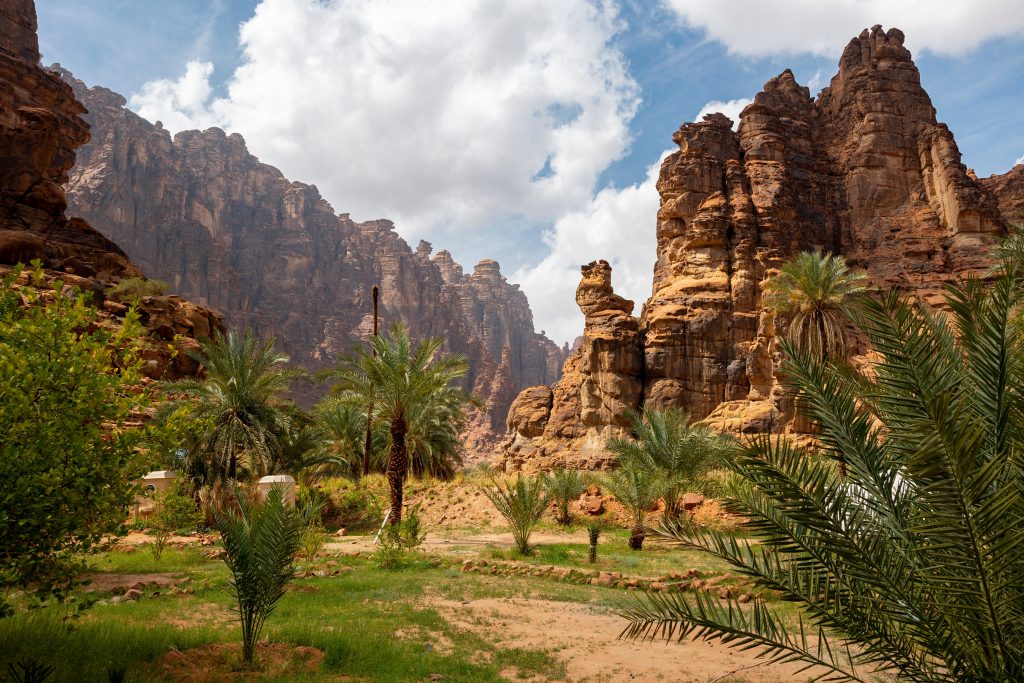
Unfortunately, the site is currently upheld by strict regulations, restricting public access to Jebel Al-Lawz. These rules might change in the coming years, given recent spikes in tourism, but it’s important to remember that historians and archeologists are still working on corroborating the location’s validity.
The good news is that visiting Saudi Arabia – Biblical Midian – offers travelers many other ancient sites to explore. From the mountain range of Tabuk to the historical marvel of Al Ula , this country has it all. Discovering the desert wilderness with local experts brings centuries-old stories to life. Our private tours provide travelers with in-depth knowledge and insightful guidance, while our group tours present tourists with a world of wonders.
Join this Al Ula and Hegra half-day tour to unearth secrets of the past or this stargazing in Al Ula tour for a unique experience beneath the stars. Browse all our tour packages to find the right choice for you. Journey across the terrain where the Israelites might have wandered and uncover a world of historical treasures.
Subscribe for insider tips to Saudi Arabia Enter your email address to stay in-the-know of what's new in Saudi Arabia. We promise to only send you guides to the best experiences. Email Keep Me Updated
Recommended

Related Articles

Celebrating the Saudi Seasons

6 Hidden Gems Of Saudi Arabia

7 Best Archeology Sites in Saudi Arabia

Saudi Arabia Culture Guide

What to Wear in Saudi Arabia
Christian tourists at risk if they display their Bible in public in Saudi Arabia
Saudi Arabia opened its doors to tourists for the first time with the launch of a tourist e-visa on 27 September, but Christian visitors should be aware that displaying a Bible in public, or taking more than one Bible into the country, could place them at risk of arrest.
The new regulations for tourists state that a Bible may be brought into the country provided it is for personal use only. Bibles must not be displayed in public and anyone found bringing a large number of Bibles will face “severe penalties”.

Saudi Arabia follows a strict Wahhabi interpretation of Islam and it is impossible for anyone living in the country to openly practise Christianity. There are hundreds of thousands of Christians from other nations, such as the Philippines, other parts of Asia, or African countries, who are living and working in Saudi Arabia. But they must meet in private homes to worship, and risk harassment, arrest and deportation if they are caught doing so. Saudi citizens who convert to Christianity face risk of execution by the state for apostasy if their conversion becomes known.
Related articles
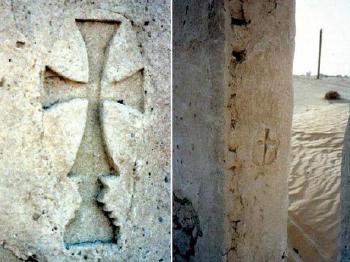
Christian convert in Saudi Arabia acquitted of theft, faces further charges
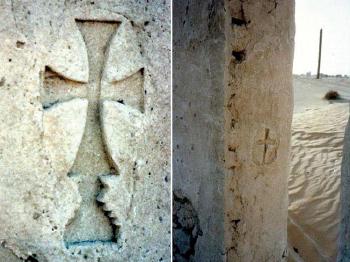

Saudi convert to Christianity faces two court cases amid threats of violence
Related countries.
Saudi Arabia
Select your region:
- Free Magazine
- Free Prayer Calendar
- Weekly Updates

Christian Tourists Risk Arrest if Bibles Are Displayed in Saudi Arabia

10/19/2019 Saudi Arabia (International Christian Concern) – Adherence to strict Saudi Arabian rules include restrictions on open Christian practice. New tourist regulations allow for one Bible to be brought into the country for personal use only. More than one or any public display of the Bible will bring harsh punishment, even for tourists.
Conversion from Islam to Christianity is considered a crime in Saudi Arabia and Christians who live and practice their faith there are in constant danger of imprisonment or violence.
In the past, Saudi Arabia has only granted visas for business or pilgrimage purposes, but as of September 27 th , the country is accepting visa applications for tourists. According to the BBC, Tourism Minister Ahmad al-Khateeb heralded this as a historic development that gives more people access to “five UNESCO World Heritage Sites, a vibrant local culture and breathtaking natural beauty.”
Al-Khateeb also commented on whether foreigners would be expected to adhere to their strict societal rules by saying, “We believe our friends and our guests will respect the culture, but definitely it is modest and it will be very clear.”
Saudi Arabia is designated as a Tier 1 Country of Particular Concern by the U.S. Commission on International Religious Freedom because of its systematic, government-sponsored persecution of religious minorities. Christians visiting Saudi Arabia are highly at risk for the same imprisonment and violence as the country’s residents at this time despite the government’s claims that they are working toward greater protections for religious minorities.
If Saudi Arabia truly wants a tourist industry that brings people from across the world to admire its beauty and culture, it must first extend full citizenship and human rights protections to its religious minority residents living in fear.
For interviews, please contact Olivia Miller, Communications Coordinator: [email protected] .

FACEBOOK FEED

It's not too late to jump in and join us with the May prayer calendar! We provide you with daily prayer requests for the persecuted based on current news stories. Get your free downloadable copy now: www.persecution.org/take-action/prayer-calendar/ ... See More See Less

- Comments: 2
2 Comments Comment on Facebook
Can I find this calendar online? The link you've provided requires my downloading the calendar and I do not wish to do that. Thank you.
Earlier this month, rebel groups attacked two camps for internally displaced people in the northeast province of Kivu in the Democratic Republic of the Congo (DRC). The U.N. reported that the bomb killed at least 18 people and injured 32 others. Most of the victims were women and children. More than 100 armed groups are active in the DRC’s northeastern region, fighting for land, control of mines, or trying to protect communities. These groups often target Christians. ... See More See Less

Bombs Kill 18 at Displacement Camps in the DRC - International Christian Concern
www.persecution.org
- likes sad angry 6
- Comments: 0
0 Comments Comment on Facebook
Real Mount Sinai Visitor’s Center
The split rock at horeb - exodus 17:6.
RealMountSinai.com is your Visitor's Center , your first stop on your journey to explore the historical and archaeological information available on the Biblical Exodus and the Real Mount Sinai in Saudi Arabia.
As you will discover the Real Mount Sinai is in the Jabal al-Lawz Mountain range, in the ancient land of Midian, located in the far north-west corner of Saudi Arabia, only 130km or 80 miles east of the traditional site at Saint Catherine in the Egyptian Sinai Peninsula. This places the Exodus of the Hebrews going "out of Egypt" and the Wandering in the Wilderness in the current land of Saudi Arabia. The Real Mount Sinai is locally called Jabal Maqla (the Burned Mountain) and Mount Horeb is called Jabal al-Lawz (the Mountain of Almonds), which is the highest mountain in the area of Al Bad, Saudi Arabia.
Search All Exodus Websites
Watch for FREE (USA & Canada) Patterns of Evidence - Film 1 & 2 Now available to watch for free (with ads) is the acclaimed film 1 and 2 of Patterns of Evidence.
- Patterns of Evidence - Exodus
- Patterns of Evidence - The Moses Controversy
- Interactive Map
- The Red Sea Crossing
- The Real Mount Sinai
- The Explorers
- The Researchers
- TV, Film, Docu
- Get E-Mail Updates
- Comments, Questions
Featured Websites: ♦ DiscoveredSinai.com ♦ DoubtingThomasResearch.com ♦ SplitRockResearch.org ♦ PatternsOfEvidence.com ♦ TheExodusCase.org ♦ AncientExodus.com ♦ WritingOfGod.com
RealMountSinai.com is contributed to by those who have first hand working experience with the body of evidence surrounding the Exodus in Saudi Arabia. Having an inside track to many more details than are publicly available gives us a perspective to be able to highlighting the best of the best of publicly available research, videos, products, and materials.
New and Interesting
- David Rohl's New Egyptian Chronology places the Exodus at 1446 BC with stunning accuracy.
- Ryan Maruo's Documentary : " Mountain of Moses" (included in the Introductory Videos above).
- Ryan Maruo's Timeline , Historical Accounts of Sinai in Arabia.
- Joel Richardson's New Book : "Mount Sinai in Arabia" [ download free ] Purchase on Amazon.com .
- Patterns of Evidence: The Moses Controversy - Feature Film completed its debut March 14, 16, and 19 across movie theaters in the United States. See more information, videos, and interviews on our page: Exodus Media (Film,TV, Docu) . AVAILABLE NOW: Purchase on DVD at Amazon.com ( also Director's Edition ). Watch Online at YouTube , Amazon Prime , iTunes , Vimeo , Christian Cinema .
Featured Videos
- Latest News
- Jawazat and MOI
- Driving in KSA

- Social Issues
- Tips for Non-Muslims
Are there Christian Churches in Saudi Arabia?
Navigate here 👇
As Saudi Arabia is an Islamic country, many people wonder if there are any churches and a Christian population in Saudi Arabia. Well, there had been some churches in Saudi Arabia.
Christian population
None of the Saudis are Christians and the Christian community is limited to the expats only. There are around 1.2 million Christians currently residing in Saudi Arabia which makes up around 4.4% of the total population.
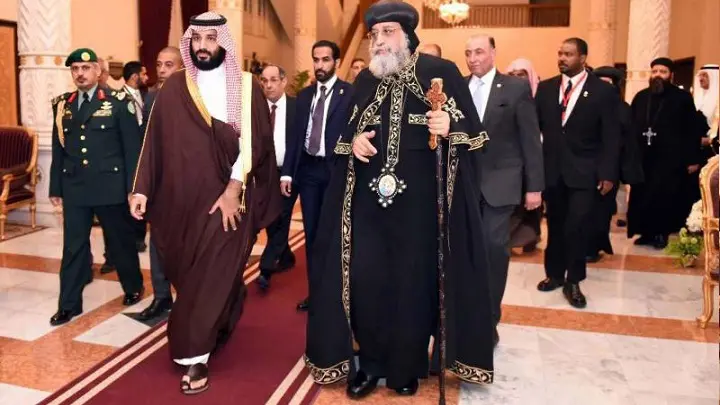
First church in Saudi Arabia
Najran located on the southern tip of Saudi Arabia was the first Christian city in the entire region. Hanyan or Hannan had converted their families to the Christian faith and had founded the first church in the 5th century.
- 8 tourist places to visit in Najran
Christian Massacre
In the year 520 A.D. the King of the Himyarites, King Yusuf desired to convert the entire region to the religion of Judaism and laid siege.
When the siege ended, the forces of King Yusuf murdered all the Christians in Najran who had refused to convert their religion. In entirety 20,000 Christians were killed for not giving up their faith.
This has been narrated in Surah Al Buruj of the Holy Quran as well. You can visit the site where the massacre took place.
- Al-Okhdood Archeological City Location .
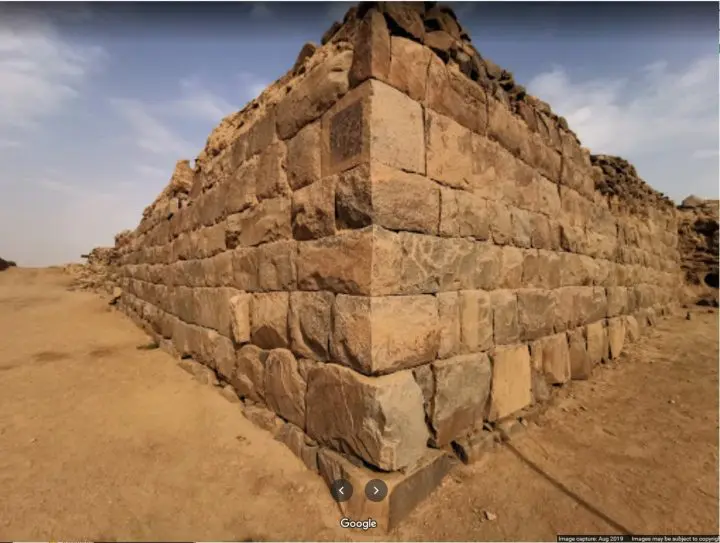
Oldest Christian church
Jubail Church is said to be a 4th-century church building from the Church of the East .
In February 1986, a young man from Jubail decided to put his new 4WD through its paces on the sand dunes west of the coastal city and finally discovered the 4th-century church. He was not even aware that he had discovered the oldest church in Saudi Arabia.
- 7 tourist places to visit in Jubail .
- Jubail Church Location .

Christians Safety
Saudi Arabia according to reports is one of the safest countries in the world to live as a Christian.
No active church
There are no operational or functioning churches in Saudi Arabia for Christians to go and worship. It is not allowed to practice any religion except Islam here.
Christmas Celebrations
Christians can only celebrate the religious occasions of Easter and Christmas in the privacy of their own homes.
- How Christmas is celebrated in Saudi Arabia?
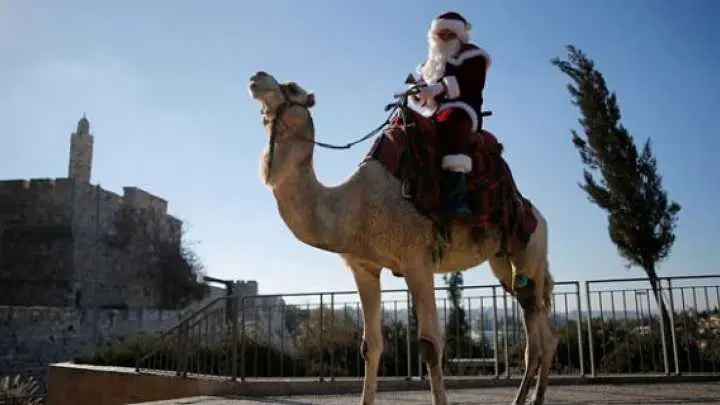
No Saudi Christian
There is not a single Saudi who is a Christian, all are Muslims.
Christian symbols are banned
All outward displays of Christian celebrations or religious symbols have been banned in Saudi Arabia.
- List of Prohibited Items not to bring in Saudi Arabia
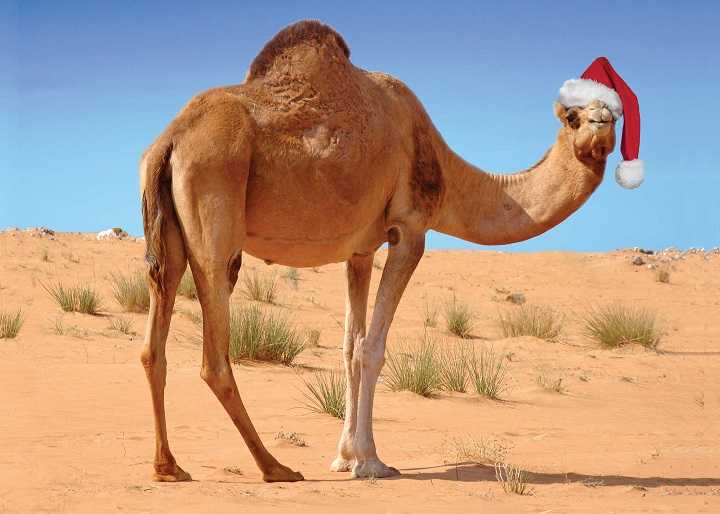
The preaching of Christianity
Preaching to non-Christians or attempting to convert any Muslims to the Christian faith will be severely punished under the Sharia Law which is practiced and implemented in Saudi Arabia.
For the latest updates, you can join our ✅ WhatsApp group or ☑️ Telegram Channel .
Never pay the full price🏷️; join the 📢 Saudi Coupon Codes group and get sales updates and discount codes in one place.
RELATED ARTICLES MORE FROM AUTHOR
How are non-muslims treated in saudi arabia, is there any hindu temple/mandir in saudi arabia, how people celebrate christmas in saudi arabia, 6 tips for non-muslims invited on iftar during ramadan, why non-muslims cannot enter mecca.
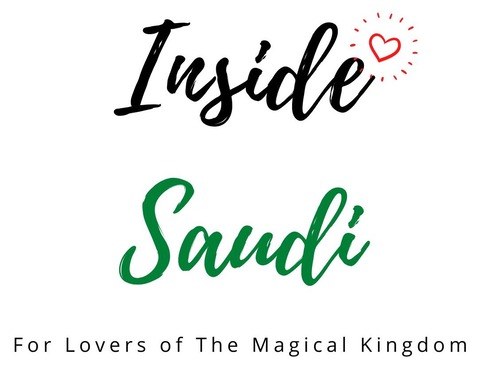
Can Christians Bring Bibles Into Saudi Arabia?
Today, Saudi Arabia has flung its doors wide open to visitors and tourists. It has also backed off on limiting what travelers can and can’t bring into the kingdom. With that in mind, I wondered if today Christians would be allowed to freely enter the kingdom with their bibles without having them confiscated as was the case in the past.
So, I made some inquiries here at the local Saudi immigration office. Here is what I discovered.
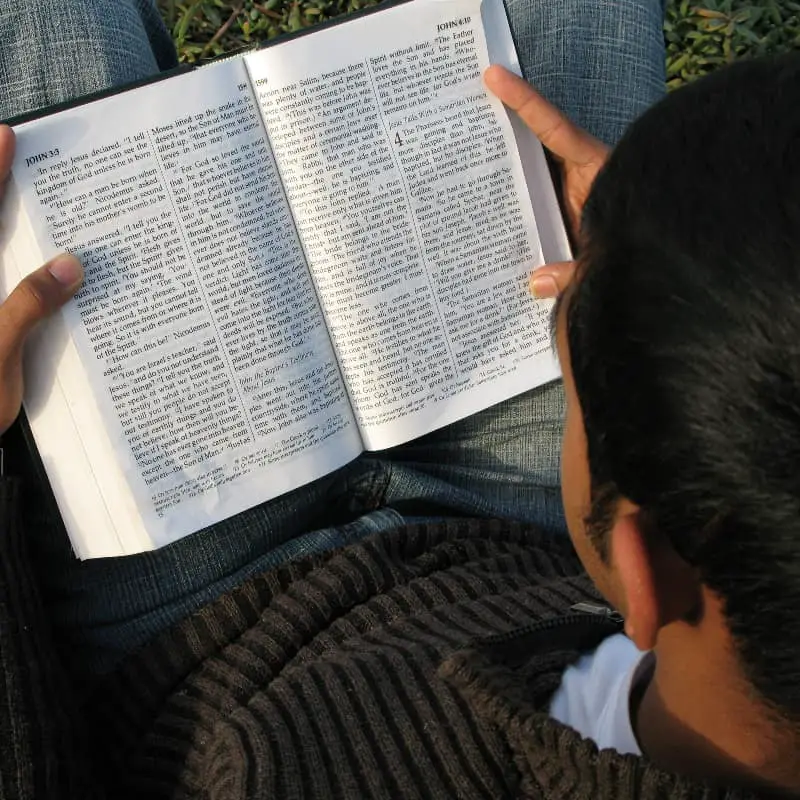
So, Can Christians Bring Their Bibles Into Saudi Arabia?
Today, Christians are permitted to bring bibles into Saudi Arabia without fearing confiscation as long as they are for personal use and not for distribution. However, public worship, preaching Christianity, and evangelistic activities promoting any other religion other than Islam are strictly prohibited.
Despite the change in attitude, residents and visitors to Saudi Arabia still live in fear that if they are caught possessing bibles they will be severely punished.
This is simply no longer the case.
I know from my own personal experience and the experiences of other Christians that they are free to carry personal copies of the Holy Bible.
However, serious problems will arise if you are caught carrying a number of bibles, and it is clear that your intention is to distribute copies of those bibles to other people with a view to converting them to Christianity.
Christians Are Allowed To Carry A Bible And Will Not Be Searched
I have lived in the kingdom for many years and have never encountered a Christian expat resident, a visitor, or tourist who had been searched and had their bible confiscated.
The simple fact is that in 99.99% of cases, it will not happen today especially with the recent opening of the country to mass tourism and the introduction of the Saudi tourist eVisa.
Read more about the Saudi tourist eVisa, what it is, who can get it, and how to apply in the following link The One-Stop Guide to the Saudi eVisa for Tourists.
The Rules And Expectation For Visitors To Saudi Arabia
The expectation and conditions for expat residents, visitors, and tourists in Saudi Arabia are that they
……abide by the Kingdom of Saudi Arabia’s Islamic laws and regulations, respecting social values and traditions at all times. (Quote) Saudi Embassy Notice
This means that before arriving in KSA, visitors undertake to learn about the Islamic laws regulating public and social life in the kingdom and agree to respect local customs and traditions.
What Would Happen If I Bring Copies Of The Holy Bibles To KSA For The Purposes Of Distribution?

The Saudi government takes a dim view of foreigners using their time in Saudi Arabia to preach Christianity and involvement in any evangelistic activities either openly or in private social circles.
First, any quantities of bibles in your possession would be confiscated. Next, you would be detained, imprisoned, tried, fined, and then deported.
Your personal choice to practice as a Christian is fully respected in Saudi Arabia. However, the religious law in the country does not allow for the freedom to promote Christianity to others.
This means that openly sharing or inviting others to Christianity is not recognized nor is it a right protected by the law in the public realm.
In fact, preaching and evangelizing are severely restricted.
Today, this also includes spreading and inviting others to the various other schools of Islam other than the officially recognized one. Only government-sanctioned groups are allowed to do so.
The Punishment For Proselytizing About Christianity In Saudi Arabia
As a visitor to the kingdom, it is likely that you would be detained by the police, (not religious police) imprisoned for a few weeks, tried, fined, and deported back to your country of origin.
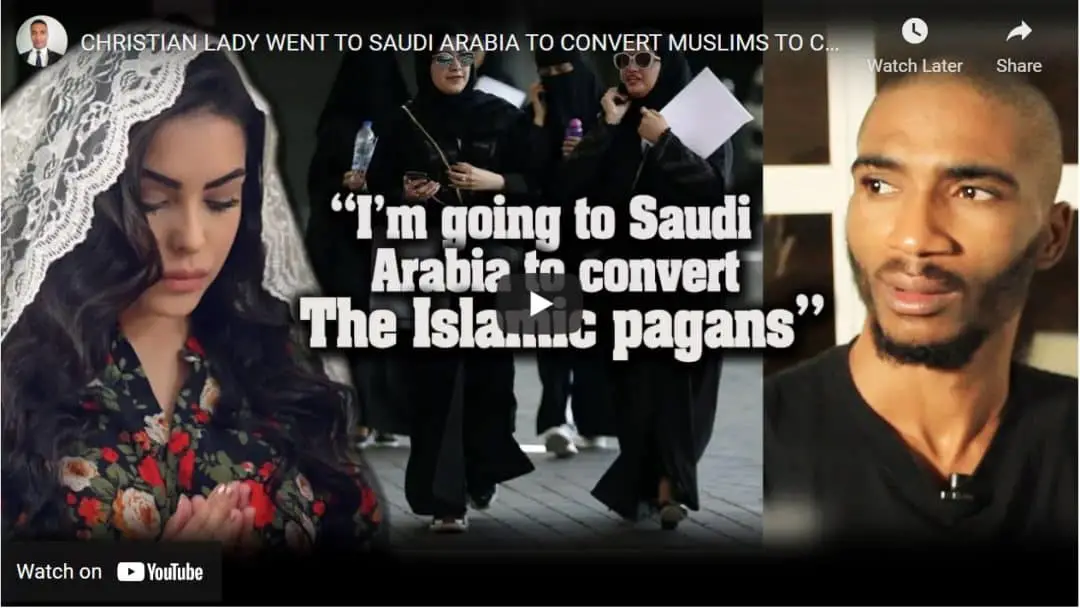
Why Is Preaching Christianity To Others Prohibited In Saudi Arabia?
According to the Islamic Sharia and state law, preaching Christianity to Muslims might lead them to apostatize, (give up their religion) an act which is punishable by death if he/she were not to recant.
Islam is the official state religion in the kingdom which is based on the Islamic Sharia law . Saudi citizens and by default their children are Muslim.
Those Muslims who intentionally leave Islam are considered apostates and under the Sharia law , leaving Islam is both socially unacceptable, and punishable by death.
Today, however, the Saudi state does not execute apostates, rather they imprison them for long periods. Saudi citizens and other non-Saudi Muslims are not free to change their religion.
However, expats and foreign Christian visitors are completely at liberty to practice their own religion in a personal way as long as they do NOT engage in activities that seek to persuade Muslims to change theirs.
What Happens To Muslims Who Convert To Christianity in Saudi Arabia?
There have been a few instances of Saudi Muslims who converted to Christianity. According to the Islamic Sharia, such individuals should receive capital punishment.
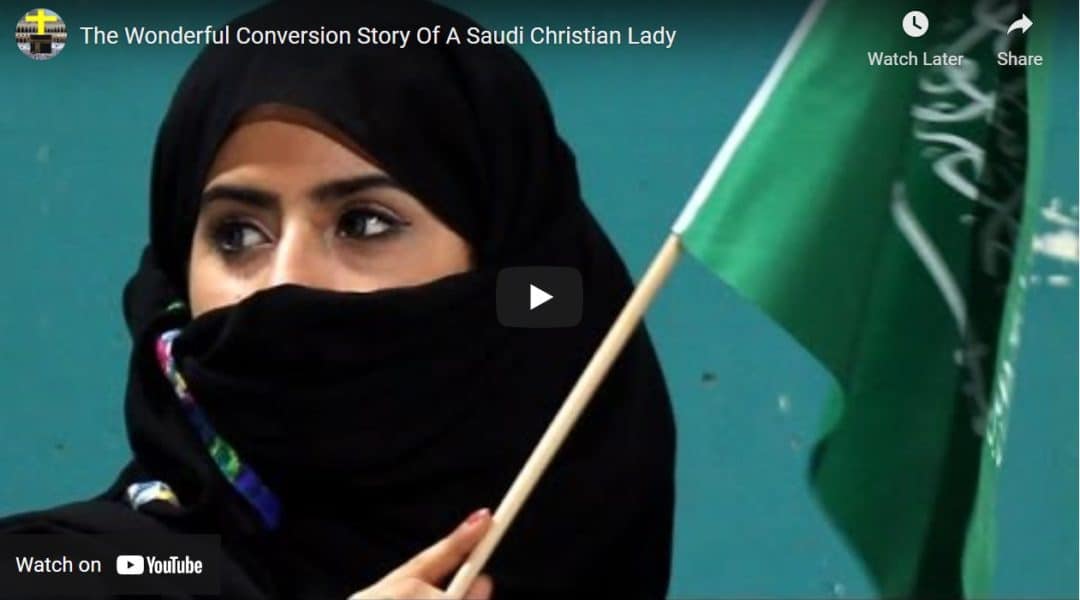
However, the state today does not execute individuals for the crime of apostasy. The punishment for leaving Islam is long-term imprisonment and a compulsory program of behavioral therapy.
Can Christians Build Churches in Saudi Arabia?
Until the present day, there are no functioning Christian churches in Saudi Arabia. The state prohibits them.
Christians are still expected to hold prayer meetings in the privacy of their own homes and not in public.
The CPVPV or Saudi religious police no longer carries out raids on Christians engaged in private prayer meetings in their homes as was the case in the past.
However, in 2018, I remember reading a number of press reports indicating that Christian churches were being planned for construction in the very near future.
Also, in 2018 the first Christian mass consisting of Egyptian Copts was held in Riyadh under the auspices of and in the presence of the Crown Prince Mohammed.
Christianity In Saudi Arabia Arrived Before Islam
Before Islam, Christianity existed in the kingdom. It came as a result of the old Arab merchants who had been in Jerusalem and had heard the Christian gospels preached there.
There are still remains of ancient Christian churches that once existed that were built between the 4th and 7th century AD.
One such example is the ancient Assyrian Jubail Church near Al Berri . Today, it is abandoned, fenced off, and mostly ignored except by a handful of Christian residents who continue to venture out to visit it.
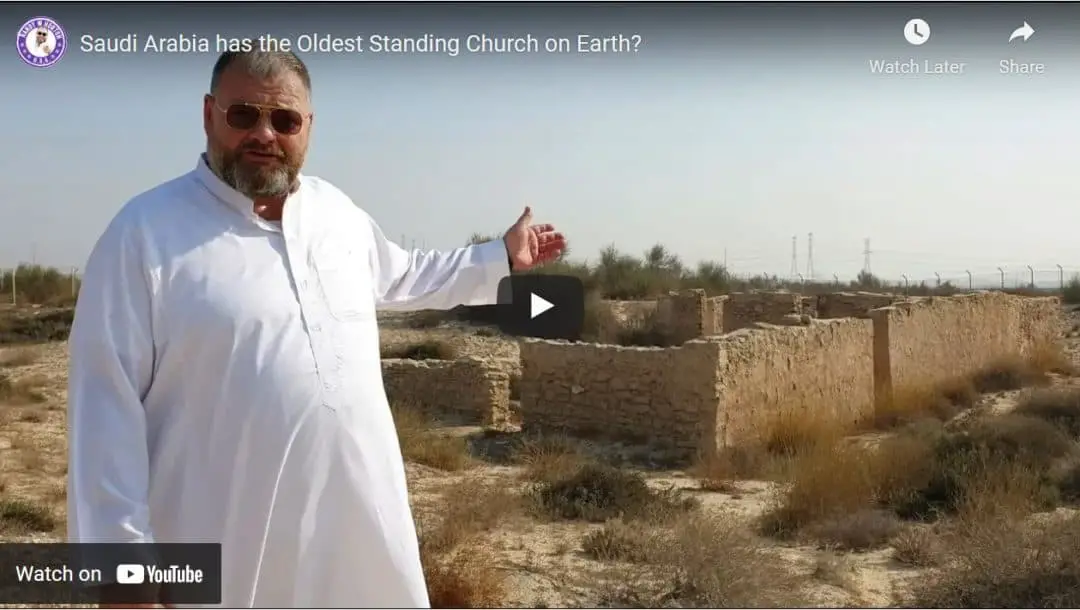
Who Are The Christians In Saudi Arabia?
Most of them are foreign expats; Filipinos (800,000) with the remainder being Indian, Arab, Asian, and Western.
It suggests that just under 5% of the 40 million people living in the kingdom are Christian.
I believe it is unlikely that these statistics are accurate. I have lived many years here and have met and come to know a lot of born Christians, but very few of them are practicing.
By contrast, in Egypt, it was easy for me to see and meet regular church-going Coptic Christians.
There they constitute about 15% of the total population of 102.3 million.
Are Christians Allowed To Celebrate Easter, Christmas and Saints Days In KSA?
Christians in Saudi Arabia are allowed to celebrate Easter, Christmas, and any other religious festival in the privacy of their homes.
It is no longer permissible for anyone to interfere with these practices as long as it occurs in private.
However, under the Islamic Sharia law and according to Saudi state law, Muslims are only allowed to participate in two annual celebrations.
They are Eid Al Fitr and Eid Al Adha . These events are sanctioned by the state and Muslim citizens, expats and visitors alike are allowed to celebrate these religious events in public or in at home.
To read about the two Islamic Eids and to understand the differences between the two, click through to inside Saudi’s How Are The Two Islamic Eids Different? -A Sheikh Weighs In
I am A Christian Living In Saudi Arabia And Want To Meet Up With Other Christians For Prayers And Worship. Can we?
Christians in the kingdom are free to meet up with other Christians for prayer and worship as long as they meet in private.
Until recently, religious Shaikhs actively discouraged Christian prayer meetings in the kingdom.
Also, the CPVPV or Saudi religious police would routinely carry out raids, detain and prosecute Christians known to be participating in prayer meet-ups.
In 2013, 53 Ethiopians were arrested DNA deported for praying together at a private residence.
Today, this is no longer the case. Mosque sermons are moderated and the powers of the CPVPV are almost non-existent.
To know why the CPCPV lost its powers in 2016, read inside Saudi’s What happened To The Mutawa Or The Saudi Religious Police?
Are Christians Harassed, Discriminated Against Or Killed For Being A Christian In KSA?
Religious minorities in the kingdom have never been harassed, persecuted, or killed. In the past, however, Christian religious activities were monitored and prosecuted by the state.
Today, ordinary Saudis and other Muslims treat Christians, Hindus, Buddhists, and other religious denominations with equality and the utmost respect.
I have asked many Saudis whether religion affects his/her treatment of non-Muslims.
In every case, they all answer that a person’s religion should not determine how he should be treated rather it is his/her individual behavior and personality that determines their treatment of them.
The Saudis who responded would like it very much if the non-Muslim converted to Islam. However, they were unanimous in the belief that non-Muslims should be treated respectfully and not discriminated against just because they are not Muslim.
References And Useful Links
53 Ethiopian Christians Arrested For Praying In A Private Home- Asia News
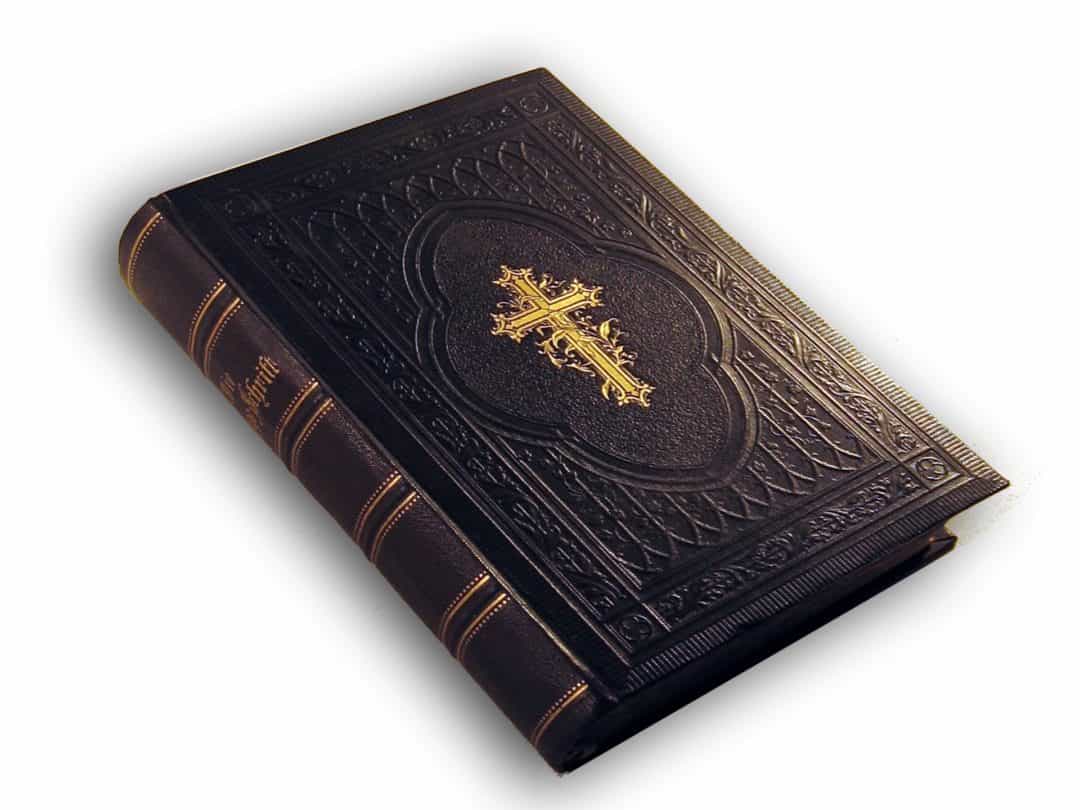
Salam Allekum! Hi there! Thanks for reading. Contact the Editor Mohammed Francis directly at [email protected] with any questions or queries.
Mohammed Francis
I am a UK national, a college teacher, father of 3, writer and blogger.
Recent Posts
Can Muslim Women Wear A Towel As Head Cover (Hijab)?
One day, a Muslim woman wrote me an email to ask if Islam permits women to wear a towel on their heads as an Islamic head cover (Hijab). She explained that she was going on vacation with her...
5 Reasons Women Should Take A Guardian (Mahram) To The Pilgrimages Hajj or Umrah
Today, Saudi Arabia allows Muslim women to do an Islamic pilgrimage (Hajj / Umrah) without a chaperone (Mahram). However, for centuries, it was not possible. A male relative had to accompany...

Religious tourism in Saudi Arabia

Makkah and Madinah are the most famous cities for religious tourism in Saudi Arabia, as they have been home to the Islamic message since ancient times. In this article, we will learn about the most important religious tourism destinations in Saudi Arabia and how to obtain an entry visa to the country and perform Hajj and Umrah rituals.
Destinations for religious tourism in Saudi Arabia :
The Grand Mosque in Makkah :
The Holy Mosque is considered the greatest mosque in Islam and the first of the two qiblah is located in the heart of the city of Makkah Al-Mukarramah and in the middle of it is the honorable camp which is the first house placed for people on the face of the earth to worship their Creator according to the Islamic belief.
It’s features distinguish it from other sanctities, including: Multiplying good deeds and reward, since a prayer in it is equivalent to a hundred thousand prayers of others, according to the words of the Prophet Muhammad – may God bless him and grant him peace – “Do not travel except to three mosques: the Holy Mosque, and my two mosques (the Prophet’s Mosque), and Al-Aqsa Mosque.”
The Prophet’s Mosque in Medina :
The Prophet’s Mosque is one of the largest mosques in Islam and the second of the two qiblahs after the Grand Mosque in Makkah Al-Mukarramah. It was built by the Prophet Muhammad – may peace and blessings be upon him – after his migration to Medina in the year 1 AH corresponding to 633 AD after he built the Quba Mosque.
The mosque went through several expansions throughout history, starting with the era of the Righteous Caliphs and then the Umayyad state, where Caliph Omar bin Abdul Aziz included the tomb of the Prophet – may peace and blessings be upon him – and his companions to the mosque, which is now known as the Noble Prophet’s Chamber located in the southeast corner of the mosque, passing through the Abbasid state.
Finally, its largest expansion took place in 1994 under the supervision of the Kingdom of Saudi Arabia. The mosque played a major role in the political and social life of the Islamic State, as it served as a social center, court, and religious school. It also held many war talks, planning the Islamic State and organizing its economic and social affairs during the time of the Prophet – may God bless him and grant him peace -.
It was often visited by pilgrims and Umrah performers after performing the rituals of Hajj. And Umrah, as it is indispensable to pray in the Green Garden inside the Prophet’s Mosque because of its great reward.
Quba Mosque in Medina :
Quba Mosque is the first mosque built in Islam and the largest mosque in Medina after the Prophet’s Mosque, as it has great merit. It was also reported in Sahih al-Bukhari and Sahih Muslim that the Prophet PBUH used to come to the Quba Mosque every Saturday, walking and riding, and praying two rak’ahs there.
The Muslims were interested in expanding it, for it was renewed by Caliph Othman bin Affan, then Omar bin Abdulaziz, and the caliphs continued after him to expand and renew its construction until the expansion work ended in 1407 AH, and the mosque of the Quba Mosque reached 13,500 square meters with 4 minarets, and housing for imams, muezzins, and a library will be attached to it, and it will accommodate 20 thousand Chaplain.
The Holy Kaaba in Makkah :
The Holy Kaaba is considered the qibla of Muslims in prayer and Hajj, and it is the first house that was placed for people on the face of the earth according to the Islamic belief. That the people be permitted to perform the pilgrimage to it, because God Almighty says: “And as Abraham raises the staples from the house, and Ishmael our Lord, you accept from us.
Kaaba has been restored and rebuilt several times throughout history; Quraysh restored it in the pre-Islamic era, then Abdullah bin Al-Zubair, as well as Al-Hajjaj bin Yusuf Al-Thaqafi, restored it during the era of the Ottoman Caliphate.
The Holy Kaaba is distinguished by its cube shape, its high construction, 15 meters high, and the length of the side with its gate about 12 meters, as well as the one opposite it. The side with the gutter and opposite it is about 10 meters long.
Al-Qiblatain Mosque in Medina :
This is the place that God Almighty commanded His Prophet Muhammad – PBUH- to change the direction of Qiblah to the Holy Kaaba, and this mosque dates back to 623 AD and has been restored and renewed several times throughout its history.
Mount Arafa :
Mount Arafa is located on the road between Makkah and Taif, 22 km from Makkah, and its importance stems from the pilgrims performing one of the rituals of Hajj on it on the day of Arafah on the ninth day of the month of Dhu al-Hijjah, which precedes the Day of Sacrifice,
It is said that Mount Arafa is the place where Adam and Eve descended from Heaven to Earth . Mount Arafa reaches a height of 300 meters and is surrounded by an arc of mountains. It has many names, the most important of which are Jabal al-Rahma, Jabal al-Thabit, and Jebel Elal.
Al-Rahma Mosque in Jeddah :
Al-Rahma Mosque is located on the Corniche of Jeddah on the Red Sea coast and is distinguished by that it appears floating on the sea at high tide, and it was designed in the traditional Islamic architectural style with modern decors with a white shiny minaret with a turquoise dome, the ceiling is decorated with inscriptions, and a number of windows at ground level provide a panoramic view on the sea, which increases the feeling of the worshipers of the feeling that the mosque is floating on the sea.
Visa / religious tourism visa in Saudi Arabia :
Many Muslims apply for an electronic visa for religious tourism in Saudi Arabia, as it is available to a number of countries, including Britain, the European Union countries, Australia, South Korea, the United States of America, China, Singapore and Japan.
Visitors need to present a copy of the electronic visa upon arrival in Saudi Arabia with their passport valid for at least 6 months, and the passport details entered in the application form must match the passport completely, and if the information does not match, then in this case the electronic visa will not be Valid. You can apply for an electronic visa through the official website.
Income of religious tourism in Saudi Arabia :
Hajj and Umrah together add $ 12 billion to Saudi Arabia’s GDP annually, which is roughly 20% of the country’s non-oil GDP and 7% of GDP, and the Saudi government has shown ambitious plans to increase Hajj revenues to 150 billion Dollars by the year 2022 through an increase in the number of pilgrims and Umrah performers, and the increase in the number of accommodation in its hotels near religious landmarks.
Religious tourism in Saudi Arabia is one of the most important pillars of the country in the economy and tourism. Therefore, religious tourism in Saudi Arabia received great support from the Saudi government represented by the General Authority for Tourism and National Heritage. Hajj and Umrah rituals are considered one of the most important features of religious tourism in Saudi Arabia.
The Private Sector is Restricted to Follow The Precautionary Procedures
Caves in mountains of northern saudi arabia paint the natural beauty, related stories.

Saudi Air Traffic Hikes 26% with 112mln Passengers in 2023

Hajj 2024: Saudi Arabia Warmly Welcomes Batches of Turkish Pilgrims

Flynas Records Increase of 51% in Number of Passengers

All You Need to Know about Hajj Rituals: A Step-by-Step Guide
Leave a reply cancel reply.
Your email address will not be published. Required fields are marked *
Save my name, email, and website in this browser for the next time I comment.
- Partner with AGBI
Pilgrims remain bedrock of Saudi tourism plans

- Almost 50% of tourism is religious
- Relaxed visa system boosts numbers
- Developers still focused on luxury
Saudi tourism is to undergo a massive expansion with religious travellers remaining its bedrock – but some hotel operators are wary of an overheated market.
The kingdom is aiming to bring in 150 million visitors per year by 2030 , with tourism accounting for 10 percent of non-oil GDP, playing a key role in its economic transformation plan valued at $1.25 trillion.
The Saudi Tourism Authority displayed the country’s offerings – from the futuristic luxury resorts in Neom , to wellness holidays in AlUla and mountain climbing in Aseer – at this year’s Arabian Travel Market in Dubai.

Newsletter Get the Best of AGBI delivered straight to your inbox every week
The plans include an additional 320,000 hotel rooms by 2030 according to property consultant Knight Frank, with more than half of them expected to be in the holy cities of Mecca and Medina.
“Knight Frank’s analysis of hotel supply in Mecca and Medina reveals a significant figure of 221,000 hotel rooms announced, planned or under construction,” said the consultancy. Super-rich Muslims are also seeking homes there.
It added that of the 320,000 extra hotel rooms, 251,500 will be in the luxury and upscale brackets, raising the share of high-end hotels from 66 to 72 percent of the total.
The high percentage of religious tourism is telling. As the location of the annual Hajj pilgrimage and the year-round pilgrimage known as Umrah, Saudi Arabia can be sure to attract a solid base of these visitors who still account for nearly 50 percent of tourism.
Pilgrimage tour and hotel operators say the opening up of the visa system since 2019 and the end of restrictions on businesses requiring a local partner have revolutionised the sector.
- Why ‘over-tourism’ offers an opportunity for the GCC
- Passenger numbers on Saudi trains leap 23% in a year
- Saudi Arabia starts issuing free stopover visa to Indians
“The strategy for 2030 means they need pilgrims from everywhere,” said Ahmed Saber, CEO of Indonesia-based Diar Al Manasik International.
“Before it was difficult to get the visa, difficult to get the package. But now it’s easy, you can go online.
“Businesses used to need a Saudi partner but now you can bring your company from outside and start business (registering) with the government,” he said, adding he had set up new offices in nine countries over the past year offering pilgrim tours.
Earlier this year the government began offering visas on arrival for pilgrims who are resident in the EU, US and UK or who possess a valid visa for those countries. Nationals of Australia, Canada, China, Malaysia, Norway, Russia, South Africa, South Korea, Thailand and Turkey can receive an Umrah visa on arrival.
The Saudi market is so frenzied that few hoteliers seem to worry about cannibalisation amid the plethora of projects underway.
Red Sea Global , a key tourism-focused giga-project, says it will have 79 hotels by 2030 . Neom is to host at least 12 resorts. Even cutting edge mall projects like Cenomi Central’s Jawharat Riyadh , which is due to open in 2027, will contain hotels.
Mandarin Oriental, which has only one luxury hotel in Riyadh among a number across the Gulf, is taking a cautious approach in contrast to some brands.
“Whilst we want to expand in Saudi Arabia, we are probably not on that progressive trajectory like some other luxury players,” said Michael Koth, general manager of the Emirates Palace Mandarin Oriental in Abu Dhabi.
“I dont think on a global scale it’s the only country one wants to invest in, but it’s one of the countries one needs to invest in. Other luxury operators have chosen to do it differently.”
Latest articles

- Real Estate
Dubai’s Emaar sets quarterly sales record of $3.7bn
Dubai-listed Emaar Properties reported its highest-ever quarterly sales, driven by sustained real estate demand in the emirate. Sales surged 47 percent year on year to AED13.5 billion ($3.7 billion), the developer said in a statement. Despite a 9 percent decline in net profit year on year to nearly AED3 billion, net profit before tax rose 16 percent […]

- Oil & Gas
Chinese companies snap up Iraqi oil and gas blocks
Iraq has awarded Chinese companies a large share of oil and gas exploration concessions as it attempts to boost its hydrocarbon reserves and attract investment. Opec’s second largest oil producer hopes to add 1 million barrels per day (bpd) of oil and nearly 3.5 billion cubic feet of gas per day. Out of 22 prequalified […]

Kuwait’s Beyout Investment Group to list on local bourse
Kuwait’s Beyout Investment Group (BIG) has announced plans to offer a 30 percent stake on the local bourse, the first in nearly two years. The final offering price will be determined through a bookbuilding process, which will be held from May 19 to 23, the company said in a statement. The shares are slated to […]

Opec maintains stance on oil demand predictions
Opec has kept its global oil demand prediction unchanged for this year as the global economy showed resilience, surpassing initial projections in some instances. The oil producers block said in its monthly report on Tuesday that it believed global crude demand would increase by 2.2 million barrels per day (bpd) in 2024 and by 1.8 […]
Download the AGBI app today

Saudi Arabia’s Vision 2030 Is Too Expensive For Tourists – And Everyone Knows It
Josh Corder , Skift
May 1st, 2024 at 9:31 AM EDT
Fancy a stay in the heart of Arabia? It'll cost you.
Josh Corder
Are Saudi Arabia’s new tourism offerings too pricey? That’s the sentiment on the ground at the Future Hospitality Summit (FHS) in Riyadh this week.
Between now and the end of the decade, 320,000 new hotel rooms are expected to open in Saudi Arabia. According to Knight Frank, 82% of those new rooms are in the luxury and upscale segments. And 66% of Saudi’s current 149,400 rooms are also upscale and luxury.
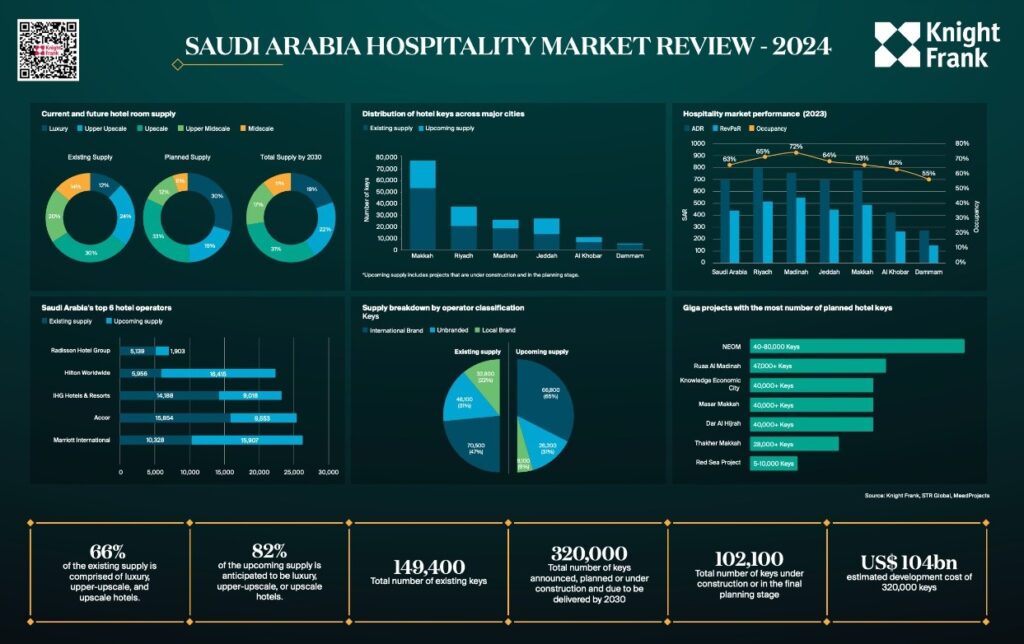
Saudi eventually wants 70 million international tourists to come visit. But it was only in 2019 that it opened for tourism at all. Saudi had 27 million international visitors in 2023 – many of them came for religious travel rather than stays at newly-developed leisure hubs.
‘Ego Projects Are Going Away’
Radisson’s regional vice president of development, Elie Milky said on a panel at the summit that “ego projects” by private investors are becoming less prevalent.
“Emotional and ego investments are going away. We need to be in line with the tourism strategy but we need to help it in not only promoting five-star categories,” Milky said. “It’s too risky for some investors to go into a place with a five-star hotel. It might be a nice idea for a five-star hotel, but you might not see return on investment.”
Many developments are being funded by Saudi’s Public Investment Fund (PIF). Chaired by the crown prince Mohammed bin Salman, PIF owns and develops tourism sites such as Neom, Diriyah Gate and The Red Sea – three leisure destinations with a swell of luxury facilities.
“Giga-projects” are being built solely with five-star hotels. Some of them are planning to cap visitation as well, making it even tougher to accommodate 70 million visitors.
The Red Sea is one such example: The Maldives-like project along the Saudi coastline is planning to open 50 luxury hotels. The plan is to open 16 hotels by 2025, and another 34 before 2030.
To date, every hotel announced there has been a luxury name.
Despite costing billions, The Red Sea is going to chip in one-seventieth towards achieving international tourism goals. The site will limit visits upon completion to protect the environment.
‘Mid-Markets Democratize Travel’
With luxury projects not moving the needle much in achieving visitor goals, hotel developers are hammering for more economical brands.
At another session at the summit this week, Wyndham’s regional MD, Panos Loupasis said: “Saudi will become exclusive. That’s a problem. If you want to attract people, and have them come again and again, visit more cities, it can’t be so exclusive. Three-star hotels are enablers for travelers. They democratize travel.”
“The market is not well-educated in mid-scale brands. There seems to be a strong focus on luxury in Saudi,” added Leva Hotels CEO JS Anand, a Dubai-based operator serving mid-scale.
“Not everybody will pay $2,000 a night,” he added.
The CEO of a privately-held hotel developer and owner had similar thoughts. “Mid-market hotels are the core accommodation in any city. A lot of people in the segment are just looking for glitz and glamor rather than a real investment strategy,” said Tashyid Urban Development CEO Falih Motasim Hajaj.
Following the publication of this article, a spokesperson from Saudi Tourism Authority sent a statement to Skift acknowledging the importance of luxury accommodation but also the range of mid-market choices in the country.
“Luxury hotels and products are a key part of what we are developing in Saudi, and we know that for some of our target audiences, both domestically and internationally, having luxury destination hotels is essential to their experience,” the spokesperson said. “However, our strategy and ambition are much bigger than that, as set out in our national tourism strategy. It is not just about luxury, it’s about building a year-round offering that caters for visitors across all tiers.”
Luxury First, Mid-market Second
Accor is one of the biggest players in growing Saudi’s tourism and hospitality infrastructure. The French operator wants an additional 45 properties with more than 9,800 rooms by 2030 in Saudi.
In the major locations like the giga-projects, these will be luxury hotels, according to Accor’s Group Deputy CEO and Premium, Midscale & Economy Division CEO, Jean-Jacques Morin.
“Luxury is in the big leisure projects – Neom, Red Sea, Diriyah and so on,” he said. “We are by far the largest operator in the holy cities as well… While in second-tier cities we have a strategy for premium, midscale and economy.”
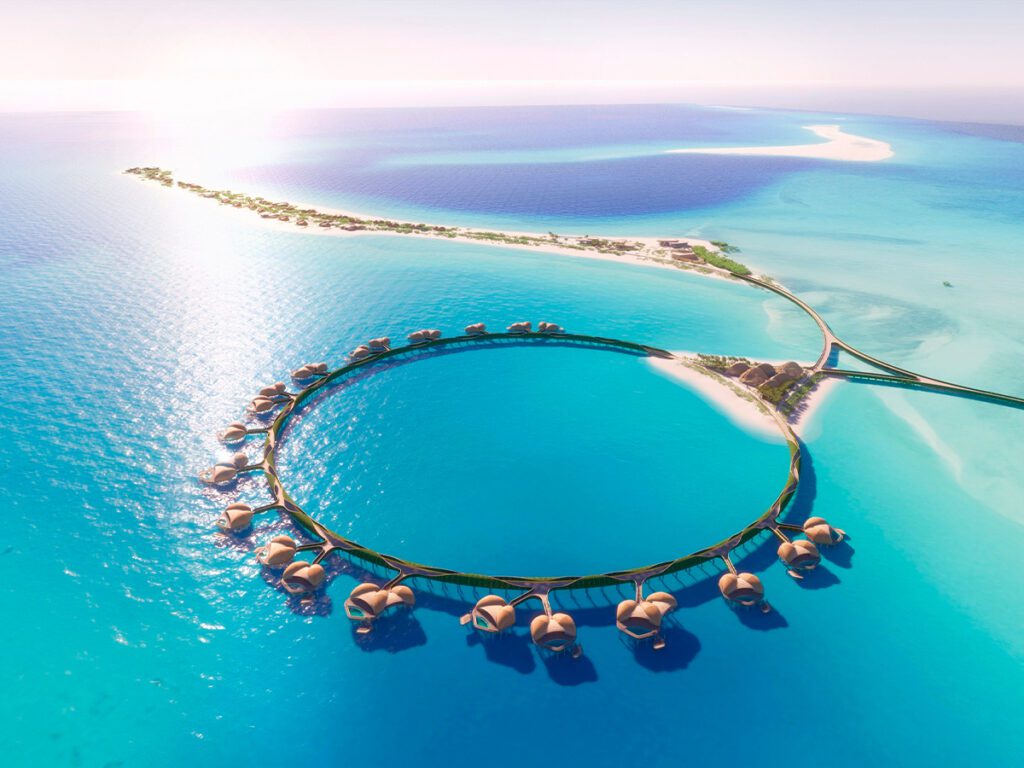
Are There Any Mid-market Hotels Opening Up in Giga-projects?
There are a few mid-market hotels, but they mostly act as lodging for incoming consultants, contractors and architects. The Red Sea has Turtle Bay hotel to put up staff in, while Trojena – one part of the Neom project – has a Hampton by Hilton up and running.
Even this hotel is commanding high rates as the only hotel for business people to use in the area.
“In terms of today, converting mid-scale hotels will drive super-normal profits,” said Hilton’s Managing Director, Development, Middle East & North Africa, Amir Lababedi. “As much as we can, we will convert existing buildings. Trojena has no hotels that any contractor can use. That’s why we brought the Hampton.”
He added that Hilton is looking at many of Saudi’s existing budget hotels as options for its new Spark brand.
Elsewhere in Neom, Oxagon has a Yotel on the way, again designed mostly for professionals.
How Many Annual Visits Saudi Projects Expect by 2030 :
- The Red Sea: 1 million
- Amaala: 500,000
- Trojena (a part of Neom): 700,000
- Sindalah (a part of Neom): 876,000
- Neom altogether: 5 million
- Diriyah: 50 million (including domestic day trips)
The Daily Newsletter
Our daily coverage of the global travel industry. Written by editors and analysts from across Skift’s brands.
Have a confidential tip for Skift? Get in touch
Tags: diriyah , middle east report , neom , saudi news , Saudi Tourism , The Red Sea
Photo credit: Riyadh
Saudi Arabia needs peace in the Middle East for its $500 billion Neom megaproject to succeed
- Conflict in the Middle East is a threat to Saudi Arabia's ambitious Vision 2030 plans.
- Some Neom projects are located along the Red Sea coast, where tensions have been escalating.
- The renewed conflict in the region has left Saudi officials walking a difficult political line.

Escalating tensions in the Middle East are threatening the success of Saudi Arabia's ambitious Vision 2030 plans — especially its desert megacity called Neom .
The kingdom has announced grand plans to boost its tourism industry to 150 million visitors a year by 2030 , aiming to build new resorts and cities that will act as Dubai-style travel hubs in the region.
But many of these planned tourist destinations are located on the Red Sea coast, where tensions have been escalating since the October 7 Hamas attacks on Israel and the subsequent conflict in Gaza and beyond.
Iran-backed Houthis have launched numerous missiles and armed drone attacks at Israel and the threat of ongoing conflict has disrupted Red Sea shipping routes, with companies opting to avoid the area .
The conflict in the region has left Saudi officials walking a political tightrope.
Earlier steps toward normalizing relations with Israel have been derailed by a resurgence of local support for the Palestinian cause, while the threat of prolonged conflict risks hobbling officials lofty goals for Neom.
A de-escalating force
Before the October Hamas attacks, Saudi Arabia already appeared to be seeking de-escalation and normalization with its foreign policy in the region.
In March 2023, Iran and Saudi Arabia brokered a deal to re-establish diplomatic relations. With some help from China, the two nations agreed to reopen their embassies in their respective capitals.
In the months before October 7, Saudi Arabia was also reportedly edging toward a deal with the US that would have included a normalization agreement with Israel. According to a New York Times report , one reason is that it's hoping for a US security guarantee if it's ever attacked by Iran.
Progress on the deal appeared to stall after the Israeli offensive in Gaza sparked anger across the region, leaving Saudi officials caught between a wave of local support for the Palestinian cause and US pressure to normalize ties with Israel.
While Saudi Arabia has called for an end to the war in Gaza and accused Israel of committing war crimes , officials have continued to express interest in normalizing relations with the Jewish homeland as long as any deal includes the creation of a Palestinian state.
Related stories
The US and Saudi Arabia are in the final steps of a new agreement on security guarantees and civilian nuclear assistance, Reuters reported last week . Normalization of an Israeli-Saudi relations is still far from being agreed.
International optics
The conflict in the region poses a problem for Saudi's hopes of attracting millions of new foreign visitors.
Kristian Coates Ulrichsen, a fellow for the Middle East at Rice University's Baker Institute for Public Policy, told Business Insider: "The Saudis are so concerned about any potential escalation because they realize they have this largely untapped Red Sea coastline, which they are now developing and see a lot of potential in."
Many of Neom's projects aimed at capturing the luxury tourism market are located along the Red Sea coast. Set to open next year, Neom's luxury island resort of Sindalah is advertised as an "exclusive gateway to the stunning Red Sea."
Saudi officials need to show that the locations are safe from nearby conflict zones to be able to attract high-spending visitors.
"The optics of stray missiles and drones slamming into Saudi cities when they're trying to attract the sort of high-end luxury markets would be disastrous," Ulrichsen said.
The 2022 Formula 1 Grand Prix in Jeddah, which took place against a backdrop of thick black smoke after Houthi missiles hit a fuel depot five miles away from the racetrack, is unlikely to be far from officials' minds.
After the attack, plumes of black smoke were visible from the circuit and seen during the first practice session, sparking alarm from international drivers.
Supply chain issues
Conflict in the region may also cause issues when it comes to the construction of ambitious projects like Neom.
"The remote location of the project, combined with renewed tensions in the Red Sea, also pose specific issues around construction and delivery of equipment and materials," Robert Mogielnicki, a senior resident scholar at the Arab Gulf States Institute, told BI.
Officials will also need to convince firms and residents to buy into Neom and attract tourists to visit. Mogielnicki said these demand-related variables mean the Saudi government and planners have less direct control over Neom's success.
Saudi officials are already fighting to combat claims that Neom is facing delays and setbacks.
In recent months, Western media outlets have reported that the country is scaling back population estimates for The Line and seeking to borrow funds .
Last month, Bloomberg reported that the financial realities of the project, which could see cost spiral up to $1.5 trillion , have started to cause alarm within the Saudi government.
Difficulties getting construction materials to the Red Sea coast could further delay some Neom projects, which are essentially already "moving targets," according to Ulrichsen.
Neom did not respond to a request for comment from Business Insider.
Watch: Houthi rebels hijack ships in Red Sea, demanding cease-fire in Gaza
- Main content
- TradeArabia Network
- Business Directory
Business Directories
- Premium Content
Guidebook on Saudi tourism explores opportunities
Riyadh, 1 days ago, more travel, tourism & hospitality stories.
- Dubai claims tops spots in Cvent list
- Novotel Riyadh Sahafa opens doors
- Adnec showcases business tourism capabilities at IMEX Frankfurt
- Maldives presents its tourism potential at Dubai event
- Moldova conference to address key aviation issues
- Radisson Dubai Damac Hills names three new managers
- IHG Hotels & Resorts names new GM for Red Sea resort
- Resorts World ‘cruises’ to homeport in the Arabian Gulf
- Incredible India event focuses on partnerships, connections
- Etihad passenger numbers soar 39% in April to 1.4m
- Emirates Group nets record $5bn profit; revenue up 15pc
- Air Arabia Q1 net drops 22pc despite 8pc turnover rise
- VisitBritain ‘Spills the Tea on Great Britain’ in run up to Riyadh expo
- RSG teams up with Oracle to bring key hospitality tech to Saudi Arabia
- Minor Hotels appoints new VP Development for Middle East
- DCT Abu Dhabi launches e-Learning platform for global travel partners
- Mix of cultures, extra serving of diversity driving Kuwait’s F&B sector
- Zayed International Airport event showcases Shanghai tourism
- Liebherr launches Krank-powered e-equipment platform
- Tourism Malaysia seeks more visitors from Middle East
- Jeddah Historic District, Cruise Saudi sign partnership
- Thailand, UAE and Singapore top Indians’ destination list
- Ras Al Khaimah plans electric air mobility by 2027
- Experience Abu Dhabi scoops ATM’s Best Stand Design Award
- Anantara Santorini Abu Dhabi Retreat names new culinary head
- New deal to elevate Saudi’s Aseer region to global tourism destination
- Germany remains preferred destination of GCC travellers
- Etihad announces special summer deals
- The Line is on track, says top NEOM official
- Barbados cricket legends join travel trade match in Dubai
Calendar of Events
- View all events
Information |
- Construction & Real Estate
- Energy, Oil & Gas
- Finance & Capital Market
- Industry & Logistics
- IT & Telecommunication
- Health & Environment
- Retail & Wholesale
- Travel, Tourism & Hospitality
- Government & Laws
- Media & Promotion
- Back to top
- Advertising
- Privacy Statement
- Terms of Service
- Work & Careers
- Life & Arts
Become an FT subscriber
Try unlimited access Only $1 for 4 weeks
Then $75 per month. Complete digital access to quality FT journalism on any device. Cancel anytime during your trial.
- Global news & analysis
- Expert opinion
- Special features
- FirstFT newsletter
- Videos & Podcasts
- Android & iOS app
- FT Edit app
- 10 gift articles per month
Explore more offers.
Standard digital.
- FT Digital Edition
Premium Digital
Print + premium digital, weekend print + standard digital, weekend print + premium digital.
Essential digital access to quality FT journalism on any device. Pay a year upfront and save 20%.
- Global news & analysis
- Exclusive FT analysis
- FT App on Android & iOS
- FirstFT: the day's biggest stories
- 20+ curated newsletters
- Follow topics & set alerts with myFT
- FT Videos & Podcasts
- 20 monthly gift articles to share
- Lex: FT's flagship investment column
- 15+ Premium newsletters by leading experts
- FT Digital Edition: our digitised print edition
- Weekday Print Edition
- Videos & Podcasts
- Premium newsletters
- 10 additional gift articles per month
- FT Weekend Print delivery
- Everything in Standard Digital
- Everything in Premium Digital
Complete digital access to quality FT journalism with expert analysis from industry leaders. Pay a year upfront and save 20%.
- 10 monthly gift articles to share
- Everything in Print
Terms & Conditions apply
Explore our full range of subscriptions.
Why the ft.
See why over a million readers pay to read the Financial Times.
International Edition

Al-Khateeb: Saudi Arabia has become a global hub for innovations with SR800 billion investments
Saudi Gazette Report
RIYADH — Saudi Minister of Tourism Ahmed Al-Khateeb said that Saudi Arabia has become a hub for innovations around the world with investments reaching SR800 billion. In his speech at the inaugural session of the GREAT FUTURES initiative conference at King Abdullah Financial District in Riyadh on Tuesday, he said that the Kingdom has witnessed a robust growth with regard to the issuance of tourist licenses by about 90 percent.
“This vital sector contributes 5 percent of the gross domestic product,” he said. GREAT FUTURES is one of the initiatives of the Saudi-UK Strategic Partnership Council, co-chaired by Crown Prince and Prime Minister Mohammed bin Salman and British Prime Minister Rishi Sunak.
Al-Khateeb noted that GREAT FUTURES offers a chance to enhance cooperation and develop investments in 13 vital and promising sectors. The minister said it also represents an important forum for exchanging qualitative expertise and learning about the latest practices in priority and promising fields. “The conference serves as a mega platform for British companies to participate in the transformation achieved in Saudi Arabia. Thanks to Vision 2030, Saudi Arabia has witnessed transformations that have unleashed its enormous potential in various fields, especially tourism,” he said.
Al Khateeb said that he looks forward to Britain playing a vital role in Saudi Arabia’s path toward achieving Vision 2030’s objectives. “This year, Saudi Arabia has received more than 165,600 British tourists. Over 560,462 e-visas have been issued for British visitors since 2019,” he said while highlighting the significant need to boost communication and increase the number of British hotel operators in Saudi Arabia.
The minister said that Saudi Arabia continues to highlight its pioneering role in several fields, and seeks to enhance its position by hosting sporting events such as “Formula 1” and “WWE.” “These initiatives have made the Kingdom a center for international sports, and this enhances the infrastructure for sports. We seek to create a sustainable environment for these sports.” Al-Khateeb’s speech also touched on many opportunities in the field of tourism and cultural exchange between Saudi Arabia and Britain.
Meanwhile, Al-Khateeb met with the UK Secretary of State for Culture, Media and Sport Lucy Frazer. They reviewed the experience of an elite group of the country’s young men and women working in the tourism sector, after they acquired qualitative skills through their training program from the best British universities.
- Industry Forum
- Advertising
- Appointments
- Marcomms360

VisitBritain ‘Spills the Tea’ for tourism campaign in Saudi Arabia
The campaign drives consumers to its new arabic website and includes a new ar snapchat lens.

Using Arabic-only assets the campaign, which got underway across digital platforms in Saudi Arabia this month drives consumers to VisitBritain’s new Arabic website.
It is designed to inspire visitors from the Kingdom to plan their travel to Britain in 2024 and signpost to the UK’s Electronic Travel Authorisation Scheme for Saudi nationals.
It also sees the launch of a new augmented reality Snapchat lens, featuring 180-degree views of Britain’s countryside and coastal landscapes, to further inspire travel from Saudi Arabia and drive the campaign’s reach and engagement.
VisitBritain CEO Patricia Yates said: “We are delighted to launch this new phase of our major brand campaign in Saudi Arabia, showcasing the breadth of exciting tourism products, experiences and destinations across Britain.”
Saudi Arabia is a very important visitor market for the UK. VisitBritain’s latest forecast predicts 240,000 visits from Saudi Arabia to the UK this year, up 9 per cent on 2019.
It is forecasting that visitors from Saudi Arabia will spend £752 million on their trips to the UK this year, up 20 per cent on 2019.
You Might Also Like

sweetwater MEA appoints new leadership team

HungerStation and Fananees team up to build emotional connections in Ramadan

Nike: ‘What if you can?’

How big a problem is brands pitching for free ideas?

PR and media networking events make waves on yachts

Havas acquires omni-commerce specialist Liquid

DHL supports young entrepreneurs in latest retail campaign
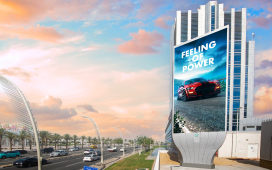
Elan’s fuel station screens to bring real-time insights to advertisers

The Secret Society: Technology, personalisation and authenticity
- Terms & Conditions
© copyright 2022 CampaignME
Information
- Magazine Archive
- Advertise With Us
From Motivate Network
- GulfBusiness
- EmiratesWoman
- Golfdigestme.com
- BooksArabia
International
- Campaign Asia
- Campaign India
- Campaign Japan 日本
- Campaign China 中国
- Campaign US
- Campaign UK
- Campaign Turkey
© copyright 2018 CampaignME

COMMENTS
Vivian Nereim has reported from inside Saudi Arabia since 2015. For this article, she and the photographer Iman Al-Dabbagh spent five days traveling through Saudi Arabia with a Christian tour ...
Living Passages, an Idaho-based travel company, launched its " first-ever Christian tour of rare sites " in Saudi Arabia. Author Joel Richardson, who led a group to "Jethro's Caves in the Land of Midian," says, "This portends to be the most significant new archaeological site in modern history.". The sold-out tour, which cost ...
SAUDI ARABIA TOURS. Explore the ancient land of Midian, the Split Rock of Horeb, and Jabal al-Lawz - the real Mount Sinai. The foundational narrative of the Exodus in the Old Testament contains some of the most vital and momentous accounts in Christian history. The quest to uncover the archeological and geological evidence of Israel's ...
Before 2019, Saudi Arabia's tourism sector was dominated by Islamic pilgrims visiting Mecca. Open practice of other religions was largely forbidden, arriving Christian tourists a significant departure from the norm. ... In this rapidly evolving landscape, Saudi Arabia has started to attract Christian travelers with its newly launched tours ...
Saudi Arabia opened its doors to tourists for the first time with the launch of a tourist e-visa on 27 September, but Christian visitors should be aware that displaying a Bible in public, or taking more than one Bible into the country, could place them at risk of arrest.
Bill Bostock. Feb 8, 2021, 2:00 AM PST. Saudi Arabia, the home of Islam, has outlawed churches and punished Christian worship for decades. The kingdom's 1.4 million Christians meet in secret, but ...
Before 2019, Saudi Arabia's tourism sector was dominated by Islamic pilgrims visiting Mecca. Open practice of other religions was largely forbidden, arriving Christian tourists a significant departure from the norm. ... In this rapidly evolving landscape, Saudi Arabia has started to attract Christian travelers with its newly launched tours ...
In 2019, Saudi Arabia opened the area to Christian tourism. Said to be ancient Midian, it is home to an alternate site for Mt. Sinai and a split-rock outcropping resembling the miracle at Horeb ...
According to Pew Research Center, the percentage of Christians in Saudi Arabia in 2018 constituted 4.4% of the country's population. [27] However, the percentage of Saudi Arabian citizens who are Christians is zero de jure, [28] as Saudi Arabia forbids religious conversion from Islam and punishes it by death.
Coeur d'Alene, ID - Living Passages, a Christian tour operator in the United States of America began offering tours to reach Exodus sites soon after Saudi Arabia opened Biblical sites.These sites had previously been closed for decades. These tours arrived on the coattails of the second delegation of U.S. Evangelical leaders hosted by Saudi Crown Prince Mohammed bin Salman.
Saudi Arabia is opening its doors to tourists and one group started the "first-ever Christian tour of rare sites" on Monday to a controversial location believed to be the real Mount Sinai, the ...
In Focus: Religious Tourism In The Kingdom Of Saudi Arabia Prior to 1946, around 60,000 pilgrims visited Mecca annually; that's a 500x expansion in annual pilgrims to be witnessed in 84 years ...
Saudi Arabia is famous for its holy Muslim sites of Mecca and Medina, but many don't know that the country may be home to one of the most important Christian sites as well. New archeological evidence suggests another possible location for the biblical Mount Sinai - the place believed to be where Moses received the Ten Commandments from God ...
October 14, 2019. Share on. Saudi Arabia opened its doors to tourists for the first time with the launch of a tourist e-visa on 27 September, but Christian visitors should be aware that displaying a Bible in public, or taking more than one Bible into the country, could place them at risk of arrest. The new regulations for tourists state that a ...
10/19/2019 Saudi Arabia (International Christian Concern) - Adherence to strict Saudi Arabian rules include restrictions on open Christian practice. New tourist regulations allow for one Bible to be brought into the country for personal use only. More than one or any public display of the Bible will bring harsh punishment, even for tourists. Conversion from […]
The Arabian—or Persian—Gulf, located in western Asia between Iran and Saudi Arabia, is an extension of the Indian Ocean. Most of its neighboring peoples are Arabs, with Arabic as their ...
The International Journal of Tourism Research (IJTR) is a ... The hajj by Muslims to the cities they deem holy in Saudi Arabia is a distinctive illustration that involves the mass movement of pilgrims every year. Numbers are strictly controlled, but set to rise as the government pursues a policy of expanding space at certain holy sites and ...
RealMountSinai.com is your Visitor's Center, your first stop on your journey to explore the historical and archaeological information available on the Biblical Exodus and the Real Mount Sinai in Saudi Arabia.. As you will discover the Real Mount Sinai is in the Jabal al-Lawz Mountain range, in the ancient land of Midian, located in the far north-west corner of Saudi Arabia, only 130km or 80 ...
First church in Saudi Arabia ; Najran located on the southern tip of Saudi Arabia was the first Christian city in the entire region. Hanyan or Hannan had converted their families to the Christian faith and had founded the first church in the 5th century. 8 tourist places to visit in Najran; Christian Massacre
First, any quantities of bibles in your possession would be confiscated. Next, you would be detained, imprisoned, tried, fined, and then deported. Your personal choice to practice as a Christian is fully respected in Saudi Arabia. However, the religious law in the country does not allow for the freedom to promote Christianity to others.
Income of religious tourism in Saudi Arabia: Hajj and Umrah together add $ 12 billion to Saudi Arabia's GDP annually, which is roughly 20% of the country's non-oil GDP and 7% of GDP, and the Saudi government has shown ambitious plans to increase Hajj revenues to 150 billion Dollars by the year 2022 through an increase in the number of ...
Al-Balad, Jeddah is a UNESCO World Heritage Site Rijal Almaa Heritage Village in 'Asir Province Elephant Rock in Al-Ula. Saudi Arabia is the second biggest tourist destination in the Middle East with over 16 million visiting in 2017. Although most tourism in Saudi Arabia still largely involves religious pilgrimages, there is growth in the leisure tourism sector.
Saudi tourism is to undergo a massive expansion with religious travellers remaining its bedrock - but some hotel operators are wary of an overheated market. The kingdom is aiming to bring in 150 million visitors per year by 2030 , with tourism accounting for 10 percent of non-oil GDP, playing a key role in its economic transformation plan ...
Accor is one of the biggest players in growing Saudi's tourism and hospitality infrastructure. The French operator wants an additional 45 properties with more than 9,800 rooms by 2030 in Saudi.
Conflict in the Middle East is a threat to Saudi Arabia's ambitious Vision 2030 plans. Some Neom projects are located along the Red Sea coast, where tensions have been escalating.
In the following years since the launch of Saudi Arabia's Vision 2030, the Kingdom's tourism industry has seen phenomenal development fueled primarily by the expansion of diverse types and ...
This research paper provides a comprehensive analysis of the burgeoning tourism sector within Saudi Arabia, set against the backdrop of the ambitious Vision 2030, and its strategic comparison with the United Arab Emirates (UAE) in terms of tourism development strategies. The study delves into Saudi Arabia's efforts to diversify its economy away from oil dependency through significant ...
The "sky's the limit", Mohammed bin Salman proclaimed in 2017, a year into his sweeping economic diversification plan that made Saudi Arabia a magnet for financiers and companies looking to ...
Saudi Gazette Report. RIYADH — Saudi Minister of Tourism Ahmed Al-Khateeb said that Saudi Arabia has become a hub for innovations around the world with investments reaching SR800 billion.In his ...
The UK's tourism offerings are being marketed in Saudi Arabia with a 'Spilling the Tea on GREAT Britain' advertising campaign. Using Arabic-only assets the campaign, which got underway across digital platforms in Saudi Arabia on 8 May, drives consumers to VisitBritain's new Arabic website. It is designed to inspire visitors from the Kingdom to plan […]